28 Fellowships for Undergraduate Research
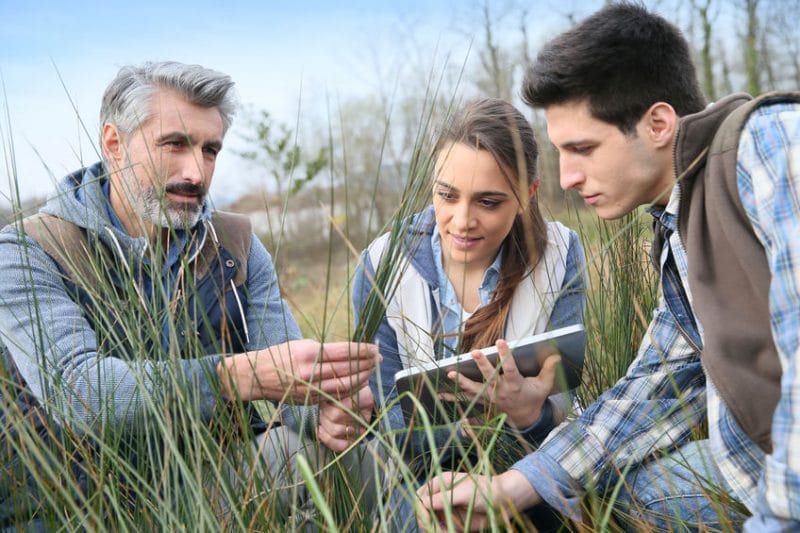

Alfred D. Chandler Jr. Travel Fellowships
The purpose of this fellowship is to facilitate library and archival research in business or economic history. Individual grants range from $1,000 to $3,000. Three categories of applicants will be eligible for grants: 1) Harvard University graduate students in history, economics, or business administration, whose research requires travel to distant archives or repositories; 2) graduate students or nontenured faculty in those fields from other universities, in the U.S. and abroad, whose research requires travel to Baker Library and other local archives; and 3) Harvard College undergraduates writing senior theses in these fields whose research requires travel away from Cambridge.
ARIT Summer Fellowships For Intensive Advanced Turkish Language Study
The American Research Institute in Turkey will offer 15 fellowships for advanced students for participation in the summer program in intensive advanced Turkish language at Boğaziçi University in Istanbul. This intensive program offers the equivalent of one full academic year of study in Turkish at the college level. The fellowships cover round-trip airfare to Istanbul, application and tuition fees, and a maintenance stipend. Applicants must be a citizen, national, or permanent resident of the United States and be currently enrolled in an undergraduate or graduate level academic program, or be faculty.
Chinese Government Scholarship Programme
Established by the Ministry of Education of P.R. China to provide both full scholarships and partial scholarships to international students and scholars to study or research at universities in China. All undergraduate programs for international students are instructed in Chinese. Applicants with no command of Chinese are required to take the college preparatory courses for 1-2 years before pursuing major studies. Provides full or partial tuition and a monthly stipend. Contact your country’s Chinese Embassy for application information and deadlines.
CHLI Global Leaders Internship and Fellowship Program
The fellowship is an opportunity for currently enrolled undergraduate and graduate from the United States and Puerto Rico, with a strong interest in the U.S. Hispanic community, to spend one semester (12-15 weeks) working with Congress and other respected corporations in Washington, D.C., and earn academic credit hours. Fellows work on project-based programs that provide hands-on experience working in public policy. The fellowship provides round-trip airfare, lodging, books and research expenses, a monthly transportation stipend, and a $2,000 living stipend. Candidates must be U.S. citizens or permanent residents.
Dannon Fellowship Grant
Two $25,000 grants are available to individuals in undergraduate, graduate or post-doctoral studies who show strong interest in exploring the gut microbiome, probiotics and/or yogurt. Established in 2012, the Dannon Fellowship Grant has expanded to include the gut microbiome in recognition of its remarkable potential on the human body – including immune health, brain health, and proper digestion and absorption. In addition to the $25,000 award, Dannon Fellows are connected to each other through this scholarship, encouraging collaboration, communication, and future opportunity in the field. Must be enrolled at at an accredited U.S. Institution.
Endeavour Leadership Program
The Endeavour Leadership Programme is the Australian Government’s competitive, merit-based scholarships and fellowships program providing opportunities for Australians to undertake study, research or professional development overseas and for overseas citizens to do the same in Australia. For international applications, the program provides funding for an Australian Masters or Ph.D. short-term dissertation or post-doctoral research, or 1-4 months of professional development. There is also a Vocational Award to pursue an Australian Diploma, Advanced Diploma or Associate Degree. All recipients will receive a travel allowance, an establishment allowance, a monthly stipend, tuition remission (if applicable) and health and travel insurance.
Endocrine Society Summer Research Fellowships
The Endocrine Society offers Summer Research Fellowships to encourage promising undergraduate students, medical students, and first-year graduate school students to pursue careers in endocrinology. The Society provides a stipend to each award recipient to participate in research projects under the guidance of a Society member for 10 to 12 weeks during the summer. After the summer fellowship, recipients are invited to attend the ENDO Conference, the Society’s Annual Meeting & Expo and will receive complimentary registration, airfare and lodging, and per diem for the duration of the meeting.
Ernest F. Hollings Scholarship
The Hollings Scholarship Program provides successful undergraduate applicants with awards that include academic assistance (up to $8,000 per year) for full-time study during the 9-month academic year; a 10-week, full-time internship position ($650/week) during the summer at a NOAA facility; and, if reappointed, academic assistance (up to a maximum of $8,000) for full-time study during a second 9-month academic year. The internship between the first and second years of the award provides the Scholars with “hands-on”/ practical educational training experience in NOAA-related science, research, technology, policy, management, and education.
German Studies Research Grant
This specialized DAAD program offers up to ten German Studies Research Grants to highly qualified undergraduate and graduate students who are nominated by their department/program chairs. The grant may be used for short-term research (1-2 months) in either Germany or North America. The program is designed to encourage research and promote the study of cultural, political, historical, economic and social aspects of modern and contemporary German affairs from an inter- and multidisciplinary perspective.
Japanese Government (Monbukagakusho) Scholarships
There are seven types of Japanese government-sponsored scholarships available under the Japanese Government (Monbukagakusho) Scholarship program for study in Japan: those for research students, teacher training students, undergraduate university students, Japanese studies students, college of technology students, special training students and Young Leader’s Program (YLP) students. Japanese language requirements apply. Scholarship recipients are recruited and initially screened by an Japanese embassy (or consulate general, depending on the country).
Maryland Department of Transportation (MDOT) Fellows Program
The Maryland Department of Transportation (MDOT) Fellows Program exposes Maryland’s college students to careers in the state sector within Maryland’s integrative transportation system. Fellows of all majors are placed in full-time assignments in one of MDOT’s units and mentored by senior-level administrators. With the knowledge gained at their placements, and through seminars, trips, and networking, fellows research and create a proposal to solve a transportation challenge. Fellows are paid a stipend of $3,500 for their participation in the program which runs from late May until August.
Mellon Mays Undergraduate Fellowship
The Mellon Mays Undergraduate Fellowship aims to increase diversity in the faculty ranks of institutions of higher learning. The MMUF program is coordinated on each of its member campuses by faculty members and academic administrators who select their institution’s undergraduate fellows, typically in the sophomore year. Fellows have demonstrated academic ability and an aspiration to pursue a doctoral degree in selected humanities, social sciences, and physical sciences. The fellowship provides fellows with many forms of support, including regular, structured programming; faculty mentoring; term-time stipends for research activities; support for summer research; and repayment of undergraduate loans up to $10,000.
Mickey Leland Energy Fellowship (MLEF) Program
The Mickey Leland Energy Fellowship (MLEF) Program provides undergraduate, graduate and doctoral students with opportunities to gain hands-on research experience with the Department of Energy’s (DOE) Office of Fossil Energy (FE). The goal of the MLEF program is to improve opportunities for women and minority students in STEM majors, however all eligible candidates are encouraged to apply. Selected candidates will train under the mentorship of program officials and scientists on focused research projects. During the 10 weeks, Fellows will receive a stipend and some may be eligible to receive housing and a travel allowance.
NEH Grants for Fellowship Programs at Independent Research Institutions (FPIRI)
Grants for Fellowship Programs at Independent Research Institutions (FPIRI) support fellowships at institutions devoted to advanced study and research in the humanities. The FPIRI program sponsors fellowships that provide scholars with research time and access to resources that might otherwise not be available to them. Fellowship programs may be administered by independent centers for advanced study, libraries, museums and research centers but can be applied for by fellows on behalf of the institution. Individual scholars apply directly to the institutions for fellowships and stipends of $4,200 a month are provided by the FPIRI.
Partnerships for International Research and Education (PIRE)
Partnerships for International Research and Education (PIRE) is an NSF-wide program that supports international activities across all NSF supported disciplines. The primary goal of PIRE is to support high-quality projects in which advances in research and education could not occur without international collaboration. PIRE seeks to catalyze a higher level of international engagement in the U.S. science and engineering community. The PIRE competition is open to all areas of science and engineering research which are supported by the NSF. The Principal Investigator (PI) must be an employee representing a U.S. Ph.D-granting institution. U.S. citizenship of the PI and other researchers on the U.S. team is not required.
Patricia and John Klingenstein Short-Term Fellowships
The Patricia D. Klingenstein Library at the New-York Historical Society is home to more than 350,000 books, three million manuscripts, and distinctive collections of maps, photographs, and prints, as well as ephemera and family papers documenting the history of the United States from a distinctly New York perspective. Two or more Patricia and John Klingenstein Short-Term Fellowships will be awarded to scholars at any academic level. Fellows will conduct research in the library collections of the New-York Historical Society for two to four weeks at a time, and will receive a stipend of $1,500 to $2,000.
Perez Research Fellowship
The Perez Research Fellowship is a 1-year fellowship for currently enrolled undergraduate and graduate students, or retired professionals, of color who want to learn about and contribute to the field of applied research and consulting. Fellows receive training in research methodologies, participate in projects, build their professional networks, and enjoy the opportunity to learn from a leading community-centered research and design firm. The fellowship is part-time and includes 10-20 hours per month of training and project work, plus a stipend of $6,000. Fellows must be able to travel to Oakland, CA for fellowship activities.
Research Experience for Undergraduates (REU)
The Research Experiences for Undergraduates (REU) program supports active research participation by undergraduate students in any of the areas of research funded by the NSF. An REU Site consists of a group of ten or so undergraduates who work in the research programs of the host institution. Each student is associated with a specific research project, where he/she works closely with the faculty and other researchers. Students are granted stipends and, in many cases, assistance with housing and travel. Students must contact the individual REU sites for information and application materials. Two deadlines: end of August and May.
San Diego Zoo Summer Student Fellowships
The Institute for Conservation Research at the San Diego Zoo offers undergraduate summer student fellowships in each research team: Recovery Ecology, Population Sustainability, Community Engagement, Global Partnerships, Conservation Genetics, Plant Conservation, Reproductive Sciences, and Disease Investigations. The program is only open to currently enrolled undergraduate students continuing their undergraduate or graduate studies the following fall. The current stipend amount is $7,000 for the 12-week program.
Science, Mathematics and Research for Transformation (SMART) Scholarship for Service Program
The Science, Mathematics And Research for Transformation (SMART) Scholarship for Service Program is an opportunity for students pursuing an undergraduate, graduate or doctoral degree in Science, Technology, Engineering, and Mathematics (STEM) disciplines to receive a full scholarship and be gainfully employed upon degree completion at the U.S. Department of Defense. Includes full tuition and a stipend of $25K – $38K, and other benefits. Undergraduate applicants must be currently enrolled in a U.S. college or university. Graduate applicants can be either currently enrolled in a U.S. university or awaiting notification of admission.
Smithsonian Tropical Research Institute Short-term Fellowships
The Smithsonian Tropical Research Institution (STRI) in Panama allows selected candidates to come to STRI year-round and is an excellent resource to provide support for graduate students and introduce them to tropical research. Although focused primarily on graduate students, awards are occasionally given to undergraduate and postdoctoral candidates. These fellowships enable selected candidates to work in the tropics and explore research possibilities at STRI. Fellowships may provide a modest stipend to cover living expenses while at STRI (currently $800/month).
SOM Prize and Travel Fellowship Awards in Architecture, Design & Urban Design
The SOM Prize is a $50,000 research and travel fellowship that enables one outstanding applicant the opportunity to travel in connection with carrying out in-depth research on a subject of their choosing; to meet with other professionals in the field; and to pursue study outside the realm of established patterns. A second award, the $20,000 SOM Travel Fellowship, offers an applicant the opportunity to expand their professional education beyond the classroom through the observation of buildings, design, culture and history that can only be achieved through travel. U.S. Citizenship is not required.
Study & Internship Program (SIP) in Germany
A joint program of German Universities of Applied Sciences (UAS7) and DAAD, this program offers students a full academic semester of study abroad at one of the UAS7 universities in Germany followed by a one-semester professional internship experience in a company or research institute in Germany. Must be currently enrolled as sophomores or juniors in one of these fields – engineering, science, life sciences, business, management, economics, architecture, art, design, journalism, social work. If selected, you will receive a full tuition waiver for both semesters and are also eligible for a DAAD Scholarship or a UAS7 Travel Scholarship.
Summer Public Health Scholars Program
The Summer Public Health Scholars Program (SPHSP) is a 10-week summer program for undergraduate students and recent graduates to increase interest in and knowledge of public health and biomedical science careers. This is a rigorous program which includes Public Health course work at Columbia University; hands-on field experience and immersion in a diverse, economically disadvantaged urban environment; seminars and lectures with public health leaders; and mentoring by faculty members. Accepted students receive a stipend, housing, travel and meals. The program is designed for undergraduates in their sophomore or junior year and recent baccalaureate degree students.
The Global Social Benefit Fellowship
The Global Social Benefit Fellowship provides a comprehensive program of mentored, field-based study and action research within the GSBI worldwide network of social entrepreneurs. The fellowship is for juniors at Santa Clara University and combines a fully funded summer field experience in the developing world with two quarters of academically rigorous research, a program of practical social justice. A 9-month fellowship for that provides a comprehensive introduction to the social enterprise movement. Each fellow receives a support package to cover all international travel, in-country expenses, and research costs, plus a modest summer stipend.
UC Berkeley Amgen Scholars Program
The Amgen Scholars Program is a national program at the University of California, Berkeley to increase research opportunities for students committed to pursuing careers in the sciences and biotechnology. This program provides outstanding science undergraduates with research experience and increases participants’ competitiveness as candidates for admission to prestigious graduate and professional institutions. You must be a U.S. citizen or permanent resident AND be enrolled in a college or university in the U.S. or U.S. territory. 22 – 25 positions available.
University Innovation Fellows Program
The University Innovation Fellows (UIF) program empowers students around the world to become agents of change in higher education. Fellows create opportunities that help their peers unlock their creative potential and develop the design-centered mindset required to take on complex challenges in today’s world. Students of all majors and academic levels – from freshmen to PhDs – who want to shape the future of education are encouraged to apply. Students go through an experiential 6-week online training program, receive year-round mentorship and attend a networking conference in Silicon Valley.
© Victoria Johnson 2019, all rights reserved.
Related Posts:
- 18 Library Fellowships for Archival History Research
- 10 Fellowships for Visiting Scholars in the U.S. and Abroad
- 18 Business Fellowships for Current and Incoming Graduate Students
- 9 Fellowships in Asia for Current Undergraduate Students
- Professional, Graduate and Postdoctoral Fellowships at Harvard University
Humanities Fellowships , STEM Fellowships
How to Make a Good Impression in a Fellowship Interview
Training to become a world leader at yale university: the yale world f..., find and win paid, competitive fellowships.
Be alerted about new fellowship calls for applications, get insider application tips, and learn about fully funded PhD and graduate programs
Fellowship Resources
- Calls for Applications
- Upcoming Fellowship Deadlines
- Fellowships Database
- Interviews with Fellows
- International Fellows Network
- Graduate Funding Directory
Fellowship Tips
- What is a Fellowship?
- Fully Funded Course
- Graduate School Funding
- Fellowship Application Tips
- Fulbright Application Tips
- Fellowship Application Guide
- Our Mission, History & Values
- ProFellow Winner Testimonials
- Fully Funded Course Testimonials
- Fellowship Industry Report
- Advertise With Us
- Terms & Privacy
ProFellow is the go-to source for information on professional and academic fellowships, created by fellows for aspiring fellows.
©2011-2024 ProFellow, LLC. All rights reserved.
Summer Undergraduate Research Fellowship (SURF)

Main navigation
The Summer Undergraduate Research Fellowship (SURF) is a fully funded, eight-week summer residential program that brings 30 talented and motivated undergraduate students from across the country and the world to Stanford Engineering for an immersive research and graduate school preparation experience.
SURF is designed to demystify the admissions process and give scholars a real feel for what it means to conduct research at the graduate level. The program provides students with housing, a meal plan, a travel stipend, and a stipend upon completion of the program. In addition, SURF students will have the opportunity to participate in a robust graduate school preparation program including coding experience, industry visits, excursions around the Bay Area, community-building activities, participation in a research symposium, and a strong mentorship component.

Welcome to our 2024 SURF Fellows! Engaged in research across all 9 Engineering departments at Stanford, our students are contributing to groundbreaking research that tackles the major challenges of the 21st century.
The program aims to build community and create a cohort of future graduate student engineers who can promote diversity of thought and experience within the engineering and science student body. Student engagement in research increases 1) the retention of students in scientific research , 2) student interest in graduate school , and 3) student interest in STEM careers . Since its inception, SURF has been a vehicle for undergraduate students to conduct scientific research and a foundation for them to pursue graduate studies in engineering.
We are committed to advancing a culture of respect, accessibility, inclusion, and empowerment at for all students at Stanford Engineering. We make intentional efforts to outreach and connect with competitive students with demonstrated potential, including those who come from environments with limited access to Research I university programs.
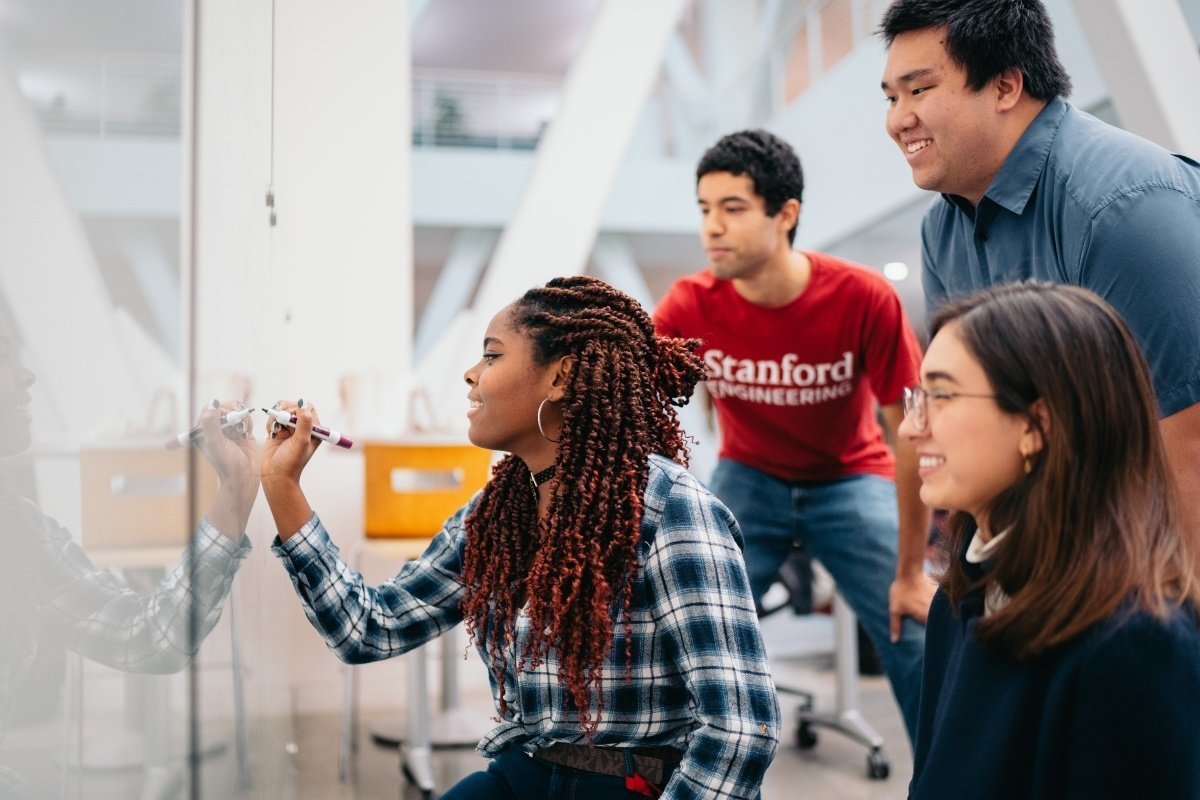
SURF virtual information sessions:
November 2024 @ TBD PT December 2024 @ TBD PT January 2025 @ TBD PT
See information session slides here
SURF Application Office Hours
Join virtually in January 2025 @ TBD PT
Application Information
Program eligibility - applicants must.
- Be at least 18 years old.
- Be currently enrolled full-time in an accredited public or private college or university in the United States or its territories, as recognized by the U.S. Department of Education. Full-time community college students in their transfer year are eligible to apply. U.S. domestic undocumented and DACAmented students are eligible to apply.
- If the applicant is a foreign national enrolled in a college or university within the United States & in possession of a valid F-1 Visa, they must be first generation (first in their family to attend university in pursuit of a bachelor's degree) and/or from low socioeconomic status, as defined by the U.S. Department of Education . Unfortunately, we are unable to accept applications from international students who are enrolled in public or private colleges or universities outside of the United States, regardless of first generation and/or socioeconomic status.
- Be in good academic standing with a GPA of 3.0 or better. Note: Applications from students who describe exceptional circumstances in their statement of purpose and/or personal history statement, or who demonstrate a marked progression of improving grades on their transcript, may be considered.
- Demonstrate a committed interest to pursue graduate study toward a PhD in an engineering field . If you plan on pursuing an MD, JD, MBA, or other non-research-focused advanced degree, this is not the right program for you.
- Have completed at least two semesters/three quarters (or equivalent) and have at least one full semester/quarter remaining of their undergraduate education at the end of the summer program. Priority given to rising juniors (3rd years) and seniors (4th years). Master's students are not eligible.
In efforts to attract applicants from a variety of life experiences, two application options are available:
- Eligible applicants are encouraged to apply to SURF through the Leadership Alliance's Summer Research Early Identification Program (SR-EIP) *
- Applicants may also apply through the Stanford SURF program application **
*Submitting an application through either portal is acceptable. All applications are reviewed thoroughly and holistically regardless of the application portal chosen, and the applicant should not submit their application twice. If you are applying through SR-EIP, you will not be able to submit an optional personal history statement or rank your top 3 SURF labs. To submit your personal history statement and lab rankings, please email PDF attachments to [email protected] with the subject line: LastName-FirstName-Personal History Statement and Lab Rankings.
**Undocumented students, DACAmented students, and first generation and/or low income international applicants studying at U.S. colleges and universities with an F-1 visa should submit their application through the Stanford SURF Portal . Unfortunately, the SURF program is unable to accept applications from international students enrolled in colleges and universities outside the U.S.
The SURF team conducts a holistic review of all applications and extends initial invitations to top applicants.
The deadline for both applications (including all letters of recommendation and supporting documents) is February 1 at 11:59pm. Applicants will be notified of a decision for the program in early March.
Many questions about the program and application can be answered in our Frequently Asked Questions (FAQ) page .
Application Materials
As part of the application form, applicants must submit the following materials:
- Resume or CV : 3 pages in length at maximum
- Academic Transcript : Unofficial transcript will suffice; official transcript not necessary.
- Statement of Purpose : The statement of purpose should be an essay crafted to convey your academic and career goals, with an emphasis on your current research interests. In this essay, you should clearly explain your interest for pursuing doctoral level (PhD) training. An interview is not a standard part of the SURF application process. Consider the statement of purpose your opportunity to introduce yourself to a review committee and the chance to answer any information you might share during an interview. Statements should be typed, single-spaced, and 1-2 pages in length.
- Two Letters of Recommendation : We highly recommend letters from faculty & supervisors who can specifically discuss your academic potential and research preparation for the program.
- Optional Personal History Statement (Strongly Encouraged) : For the optional personal history statement, we invite you to share unique, personally important experiences, demonstrated values, perspectives, or activities that have led you to this point in your academic/professional journey. Please discuss how they have influenced your path in school, inform your approach to science and research, and/or serve as motivation for pursuing your chosen field in engineering. 1000 words max. Note : If you are applying through Leadership Alliance SR-EIP and would like to submit an optional personal history statement, please email a PDF attachment to [email protected] with the subject line LastName-FirstName-PersonalHistoryStatement.
Application Resources - Exemplars
In an effort to support applicants in preparing their applications, updated exemplars will be provided in fall 2024. These are not meant to be prescriptive, but rather to offer you examples of what successful statements have looked like in previous years; remember there are many ways to write successful statements. We encourage you to have your statements reviewed by trusted mentors, as well as your college or university's writing center tutors if those are available to you.
For Stanford Labs - Host a Scholar
Thank you for your interest in serving as a lab host for the SURF program. PIs should complete our Lab Host Interest Form to confirm your interest and availability. SUNet ID Authentication is required to access the form.
2024 SURF Lab Host Interest Form
2024 SURF Lab Host Guide and FAQ

Check out our Frequently Asked Questions, or connect with us at [email protected]
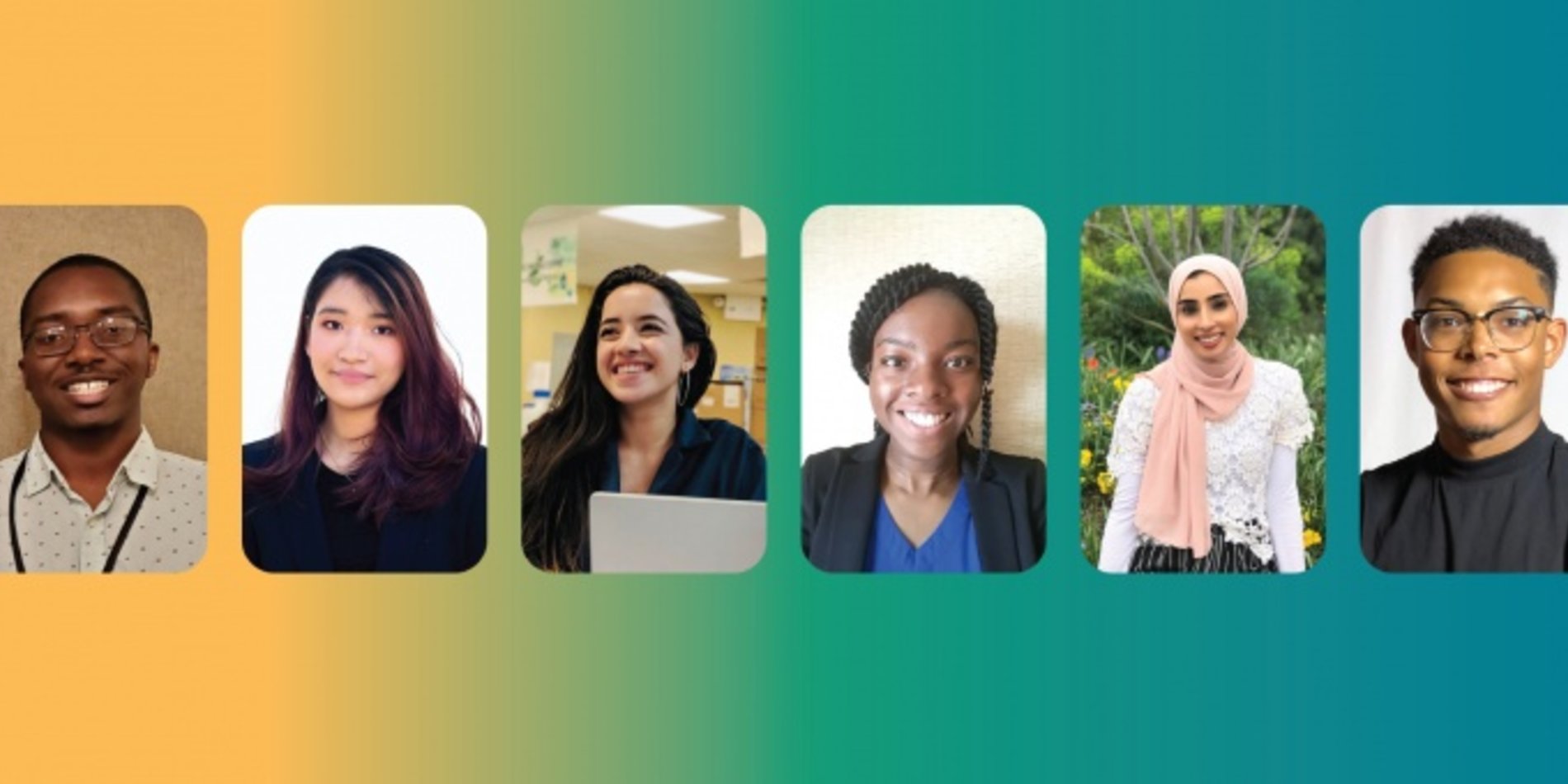
Scholar Spotlights
Learn from our past scholars about SURF!
- Student/Faculty Portal
- Learning Hub (Brightspace)
- Continuous Professional Development
- Application Process
- Stipend and Housing
- Transitioning to Ph.D.
/0x0:512x512/prod01/channel_2/media/mccms/content-assets/academics/biomedical-research-training/summer-undergraduate-research-fellowship-surf/SURF_Hero_512X512.jpg)
Explore your research interests with a summer research experience at Mayo Clinic
Summer undergraduate research fellowship (surf).
A career in biomedical research is not for everyone. But if you love science, get a thrill out of discovery, enjoy tough problems, and want to contribute to medical breakthroughs, then a career as a Ph.D. or M.D.-Ph.D. scientist might be for you.
Mayo Clinic Graduate School of Biomedical Sciences offers a 10-week Summer Undergraduate Research Fellowship (SURF) experience for undergraduates wanting to build their skills as young scientists.
Mentorship opportunities
access to more than 350 faculty mentors
undergraduate students accepted each year across 3 campus locations
Alumni reach
More than 3,000 program alumni
Program highlights
The Mayo Clinic SURF Program has helped thousands of undergraduate students explore their interests in research. As a summer fellow, you will be immersed in research opportunities. You’ll gain valuable experience in the lab and work closely with your mentor on a research project designed specifically for summer students.
Our SURF fellows tell us about the lasting friendships they made during the program and how the experience helped them with their career decision-making process.
In addition to their lab work, fellows also describe some of their unique experiences:
- Mentors. The daily experience of learning from Mayo Clinic faculty, postdoctoral fellows, graduate students, medical students, and others who are farther along their career paths.
- Real-world research insight and experience. The excitement of gaining hands-on experience with real-world research projects at a major medical center. And, because the questions they are studying are at the forefront of science, many students earn acknowledgment or co-authorship in articles submitted to professional publications.
- Top-notch scientists. The opportunities they had for close collaboration with nationally and internationally recognized scientists.
- Modern facilities. The chance to learn how to use world-class instrumentation in state of the art research facilities.
- Community. Great times living, learning, and working with the whole SURF community.
We work hard to bring together a wide variety of talented, motivated students from all ethnic, geographic, educational, and economic groups.
/480x0:960x480/prod01/channel_2/media/mccms/content-assets/academics/biomedical-research-training/summer-undergraduate-research-fellowship-surf/TamielsStory_SURFVid_1440X480.jpg)
Student story: Meet Tamiel Turley
Research specialization options
Our undergraduate summer research program provides opportunities for current college students interested in expanding their research experience in a variety of specialized research areas:
- Biochemistry and Molecular Biology
- Biomedical Engineering and Physiology
- Clinical and Translation Sciences
- Molecular Pharmacology and Experimental Therapeutics
- Neuroscience
- Regenerative Sciences
- Virology and Experiments
During the application process , you will indicate your research preference area.
Application window
Application window: Nov. 1, 2023 - Feb. 1, 2024 Program dates: May 28 - Aug. 2, 2024
Mayo Clinic Graduate School of Biomedical Sciences 200 First St. SW Rochester, MN 55905
- Summer Undergraduate Research Fellowship Program
- Programs of Study
Are you a current undergraduate student considering pursuing a PhD? Each summer, the Yale Summer Undergraduate Research Fellowship (SURF) Program brings a group of undergraduates to Yale for eight weeks to explore what a PhD could offer them. As a SURF program participant, you will:
- learn about the kind of work you can expect to do in graduate school
- gain insight into building a career based on PhD-level training
- become more confident in your academic abilities and potential
During the program, you will be immersed in an academic, professional setting with a faculty mentor, a post-doctoral associate, and/or an advanced graduate student. The program focuses on research: you will pursue individual research projects and participate in workshops and panel discussions.
- If you are interested in the natural sciences, you will learn advanced laboratory methods and conduct research in state-of-the-art facilities.
- If you are interested in the humanities or social sciences, you will work closely with mentors and use the extraordinary resources found in Yale's libraries.
You will learn to present your research effectively to colleagues, develop a proposal, give a final presentation to your peers, submit a written final paper, and present at the Leadership Alliance National Symposium.
Program Details and Application
The SURF Program is intended for students with a strong desire to pursue research careers at the PhD level. Preference is given to students completing their sophomore or junior years. Applicants must exhibit outstanding academic promise and achievement. We especially encourage applications from students who come from an economically disadvantaged background, are a first-generation college graduate, or have otherwise faced significant obstacles in their pursuit of higher education.
Free housing in a Yale dormitory is provided to SURF participants, along with a $1,000 allowance for food. Air or train transportation to and from the program is covered up to $400 (not including excess luggage charges). All travel arrangements are made through the SURF Program Office. Program participants receive a $4,000 stipend.
The SURF program runs over eight weeks in June and July.
Please apply through the Leadership Alliance Summer Research-Early Identification Program (SR-EIP) website . Note: if you are interested in the NSF “REU Site: Research training in biomedical science and engineering” (click here for more info about the program) you still need to apply through the Leadership Alliance Application portal .
The application opens on November 1 and closes on February 1.
Admissions Notifications: If you are selected to participate, you will be notified by email no later than April 1. Please do not contact the office to inquire about your application status.
Student Testimonial
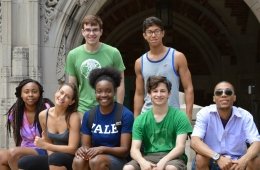
Omkar A. Katta, Yale SURF Participant, Summer 2019
“It has been a couple of days since I’ve returned home, and I am already missing my time at Yale University. Thank you all for an incredible summer. The friends I have made, the experiences I have had, and the moments we have shared will be near and dear to my heart. You are a huge part of why this summer has been one of the greatest summers in my life. From writing proposals and manuscripts to giving presentations, I have learned the skills necessary to conduct quality research, and I will carry these skills with me for the rest of my research career. Perhaps more uniquely to this program, you created an environment that mirrored the real world experience of conducting research. From exchanging business cards to networking with strangers, I learned what it means to be a polite and productive citizen of academia. I know that in future iterations of the program, you will continue to deliver the same experience to aspiring researchers like me. Thank you for what you have done.”
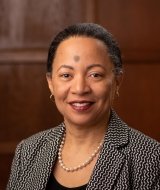
Michelle Nearon
Senior Associate Dean for Graduate Student Development and Diversity
- [email protected]
- 203-436-1301
- Warner House Room 206
Honors College
Search form.
- EagleConnect
- UNT Directory
- Jobs at UNT
- Honors College Member Benefits
- Honors College FAQ
- Prospective Student Sessions
- Schedule an Appointment
- Advising FAQs
- Honors College Classes
- Honors College Contracts
- Mentored Research
- Honors Thesis
- Study Abroad
- Honors College Awards
- Honors College Handbook
- Graduation Information
- Global Scholars Program
- Phi Kappa Phi
- Honors College Community Engagement Recognition
- Mentorship Program
- Honors College Programming Council
UNT Undergraduate Research Fellowship
- Undergraduate Research Resources
- UNT Scholars Day 2023 Competition Winners
- Alumni Scholars
- North Texas Journal of Undergraduate Research
- Honors Research Poster Print Request
- How to Proceed
- National Award Winners
- National Scholarships: UNT Endorsement Required
- National Scholarships: UNT Endorsement not Required
- Departmental Eagle Scholarship Portal
- Undergraduate Research Fellowship
- HC Summer Research Scholarship
- HC Study Abroad Scholarship
- HC Travel Grant
- Appeal Process
- Terry Scholars
- Update Your Information
- Events & Updates
- Alumni Spotlights
- Support the Honors College
- Student Life
- Scholarships
You are here
Application deadline: june 20th, 2024 (application opens january 19, 2024), about the urf.
The Undergraduate Research Fellowship (URF) is an opportunity for students who wish to conduct guided research in their field of study, gaining invaluable experience, unique credentials, and a faculty champion. Students can apply this spring semester to earn a 2024-2025 URF Placement.
The URF rewards students who enter—and show promise of significantly contributing to—faculty-led research environments. Such research will occur in a host of settings—whether in labs, or under individual faculty mentorship. The URF is a campus-wide opportunity open to undergraduate students of all majors.
Students, in joint petition with their professorial research mentors, will undertake competitive application for a URF. If accepted, Undergraduate Research Fellows will spend the academic year participating in research under the guidance of their identified faculty mentor. URF participants will receive a $500 award after presenting their research at the Scholars Day event in the Spring semester of the participating academic year.
Students may reapply for an Undergraduate Research Fellowship on a yearly basis and can earn up to four such awards during their undergraduate career.
Application Processing
While the URF is a campus-wide opportunity, the processing of submissions occurs within the Honors College (students do not need to be Honors College members to apply). Because different disciplines define research and creative expression in varied ways, criteria for admission into research endeavors will remain under the auspices of our several colleges and individual departments.
Students and their research mentors will be notified of the URF application outcome in the summer before the 2024-2025 academic year.
Course Credit (Optional)
The URF program does not require participants to take a corresponding course. If participants wish to earn course credit for their URF participation, they must pursue that option via other departments.
Students who are members of the Honors College may choose to earn Honors College course credit for their URF participation by enrolling in the Honors Mentored Research course. Applicants who wish to do so should indicate on the application that, if accepted to the URF, they would like to be enrolled in a section of HNRS 2996/3996 Mentored Research. In order for URF participants to receive Honors College credit for their work, they must additionally submit a proposal for a Mentored Research experience to the Honors College.
Please note that participation in the URF does not automatically award honors credit. For more details about earning Honors College credit for the URF, please reach out to [email protected] .
Summary of Eligibility
- Applicants must be UNT undergraduate students, who will not graduate prior to May 2025.
- Incoming first-year TAMS students who have not yet started a semester at UNT are ineligible.
- In cases where faculty mentors already have grants to cover the cost of student assistants, the student may become an Undergraduate Research Fellow, but without further remuneration.
- Students are ineligible if they have already earned three Undergraduate Research Fellowships.
Fellowship Requirements
- URF recipients must consistently participate in their research project, in accordance with the expectations set by their listed research mentor, for the entirety of the 2024-2025 academic year
- 2024-2025 URF winners must present their research, in the form of presentations, papers, or a brief performing-arts production, on UNT Scholars Day in April 2025
- Students will lose their URF if they switch research mentors following the application period or if they fail to communicate on a regular basis with their research mentors. Only if a research mentor leaves UNT, or if health-related matters prevent mentors from continuing to supervise their students, will students gain permission to switch mentors or projects.
Application Requirements
- In collaboration with their faculty research mentor, students must submit a 100-150 word statement describing their research project.
- Faculty mentors must participate in the upload application process, certifying that they are willing to mentor the student for the 2024-2025 academic year and confirming information relative to IRB/IACUC .
Apply Now !
Mellon Mays Undergraduate Fellowship Program
Forging a just academy and shaping the future of the humanities
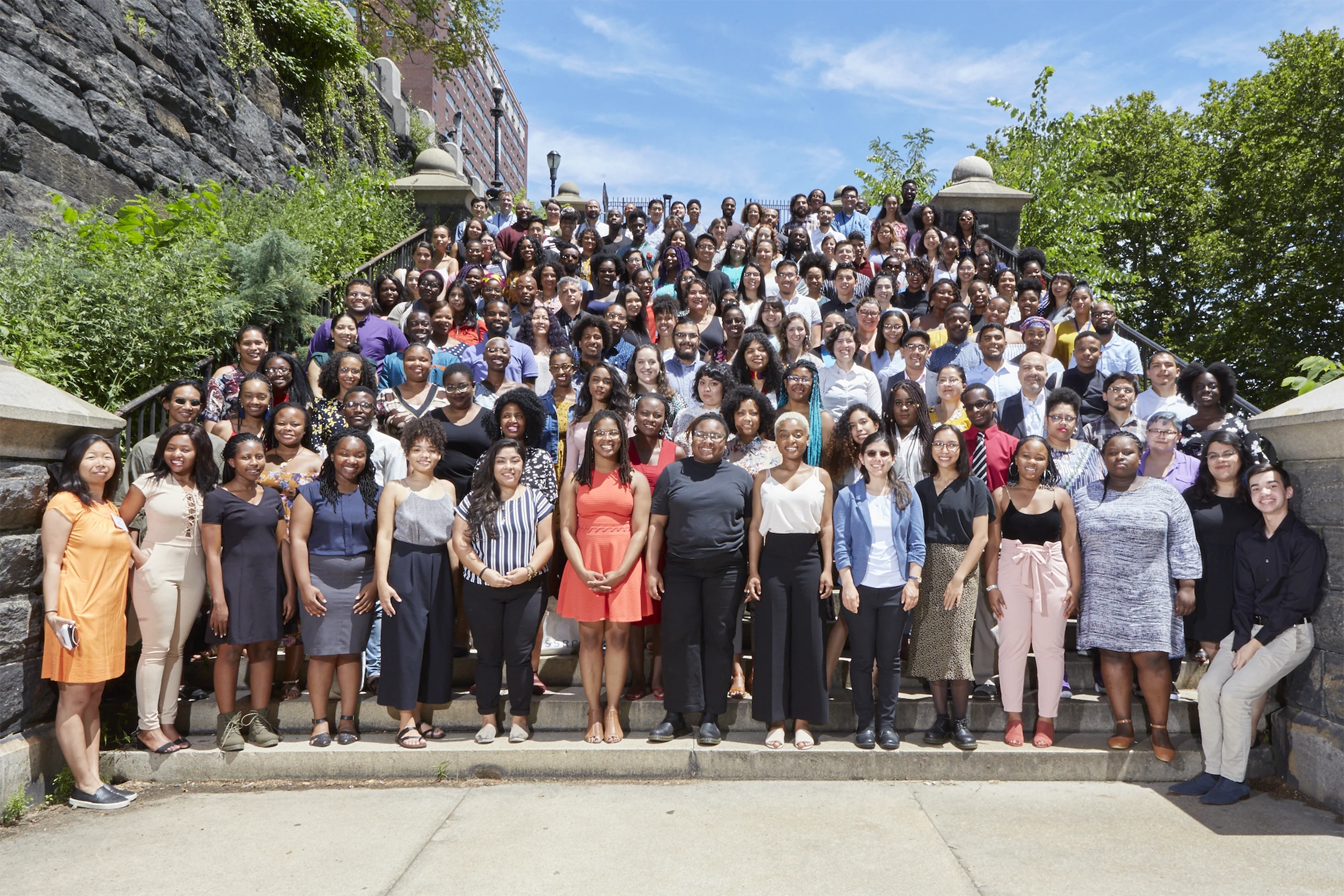
- About the Program
- 2017 SURF Students
- 2016 SURF Students
- 2015 SURF Students
- 2014 SURF Students
- 2013 SURF Students
- 2012 SURF Students
- 2011 SURF Students
- 2010 SURF Students
- 2009 SURF Students
- 2008 SURF Students
- 2007 SURF Students
- 2006 SURF Students
- 2005 SURF Students
- 2004 SURF Students
- 2003 SURF Students
- 2002 SURF Students
- 2001 SURF Students
SURF Program
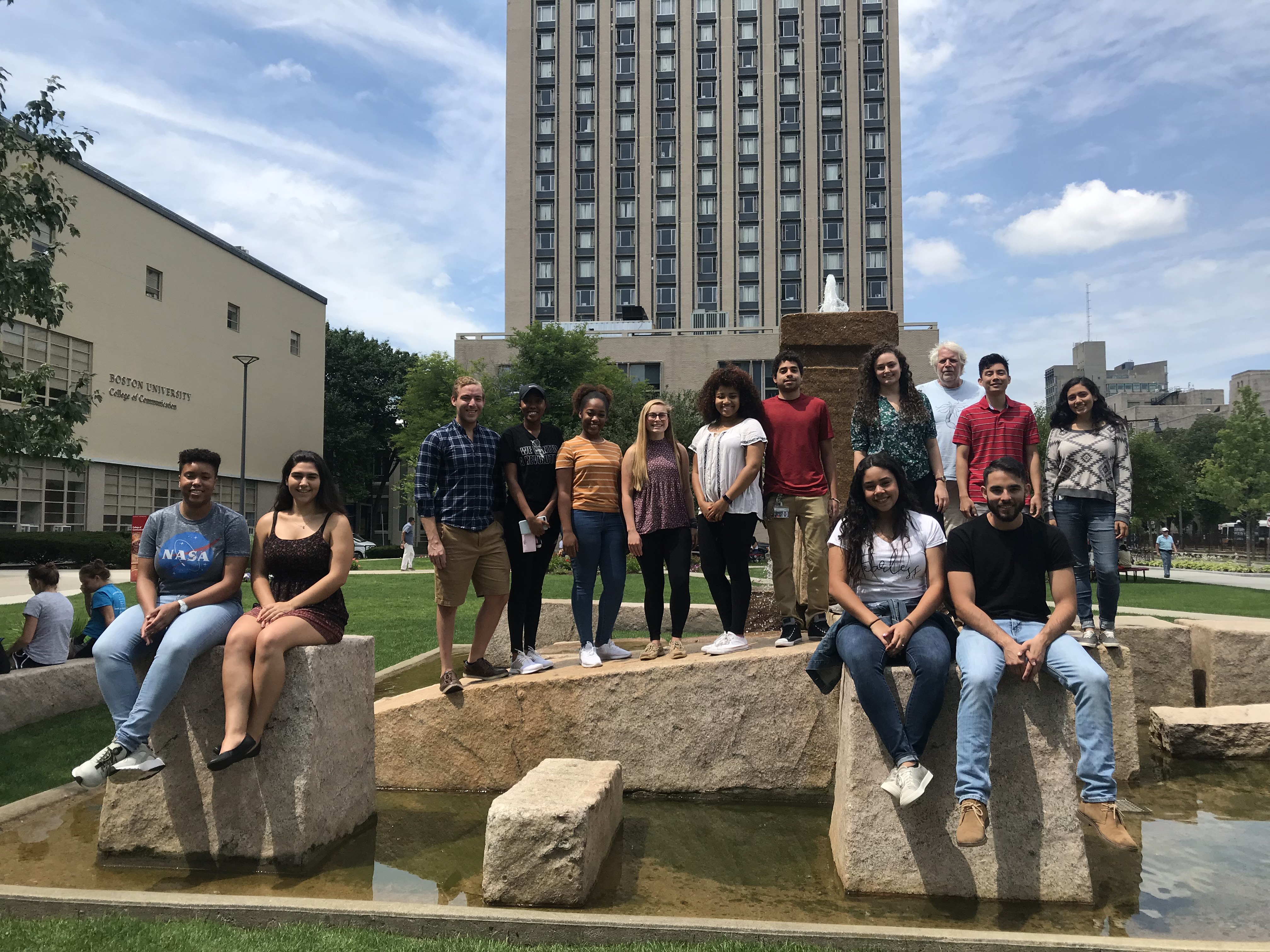
The application page for summer 2024 is open, see links below to the page.
The Summer Undergraduate Research Fellowship (SURF) Program at Boston University is designed to promote access to graduate education for talented undergraduate students, especially those from minority groups, traditionally underrepresented in the sciences – African-American, Hispanic, Native American/Native Alaskan, and Pacific Islander/Native Hawaiian/Polynesian – or persons living with disabilities. The SURF Program is supported by funds from the National Science Foundation (NSF-REU) and Boston University.
The SURF/NSF-REU Program is open to non-BU students who are rising juniors or rising seniors, and wish to conduct research in the sciences or technology fields. The program consists of ten weeks of full-time research (early June – mid-August) in a Boston University lab, mentored by a BU faculty member. For summer 2024, student research projects will be in areas related to Biology and the control of gene expression for biological outcomes. On-campus housing, a stipend, weekly enrichment activities, social events, and an October weekend trip to present findings at the Boston University Undergraduate Research Symposium are also included. To apply for the SURF/NSF-REU program, click here .
The application period for the Summer 2024 SURF program will run from mid-December 2023 till April 1, 2024. Applications will be reviewed and offers will be made on a rolling basis, so it is advantageous to get your applications in early.
Please read the application instructions at the NSF-ETAP site carefully before applying to the SURF program: you will need to fill out an application, provide a transcript, and ask two professors to submit letters of recommendation. Feel free to contact the Biology office if you would like more information ([email protected]; 617-353-2432).
Summer Undergraduate Research Fellowship
- Boston University
- Utility Menu
GA4 tracking code

- All URAF Opportunities
- CARAT (Opportunities Database)
- URAF Application Instructions
- URAF Calendar of Events and Deadlines
- Research Opportunities
Performing research can be a very enriching and transformative part of your undergraduate experience at the College. You may encounter it as part of your coursework, but it can also be something you do outside of the classroom as a way to gain practical skills, learn about methods of inquiry and contribute actively to the advancement of study in your field.
Finding a research opportunity will require you to be proactive, build faculty relationships , and use key resources . It may be good to start by charting your personal goals and interests in order to help you identify opportunities that are a match for them. Remember to give yourself plenty of time for your search and to remain flexible and open-minded through the process. Engaging with the research community at Harvard is possible for students in all concentrations. Whether you have participated in research work previously, or are just getting started, there are opportunities designed to meet you where you are right now.
Research opportunities come in many formats and happen in a variety of settings. They often start off as a question that someone wants to explore more fully. Faculty, for example, initiate research projects designed for this purpose. It might also begin with you! In your studies, for example, you may have noticed a lack of knowledge or a lack of recent work on a particular topic that interests you. With the guidance of a faculty mentor, you could be the person to explore and find answers to fill in the void of missing information.
Depending on the scale of a project, you might find yourself working on a team or operating on your own and coordinating your efforts with those of a faculty mentor. This work may take place on campus, at other domestic locations, or even internationally, during term-time or over the course of the summer.
Some common formats of research experiences for undergraduates include:
Course-based Research
Courses (existing or independent study). Many courses at Harvard and neighboring institutions (where you can cross-register ) have a strong research component. There is even the option for you to design an independent study course. To explore these options, the best starting point is with a concentration adviser knowledgeable about course offerings and policies in that concentration. You can also visit the Advising Programs Office (APO) to connect with undergraduate concentration advisers.
Research Assistantships
There are many opportunities to work as a research assistant on an existing project. A research assistantship is an excellent opportunity for students with little experience to get their first exposure to research. Research assistantship postings can be found on department webpages, at research centers, as well as on the Student Employment Office Job Board . You can also check with nearby hospitals and research groups, in addition to faculty and grad students. If you have never contacted research investigators before, check out our tips on how to effectively reach out to faculty .
Research Programs
In lieu of performing research via a course or an assistantship, you might consider looking at a research program. Depending on the program, you might work on a project designed by a member of faculty or propose your own question to pursue under the guidance of a faculty mentor. URAF summer programs, for example, are designed to correspond to specific academic areas (i.e., STEM, Arts and Humanities, Social Sciences), forming a cohort of fellows working on various topics in their area of interest.
URAF research programs are offered on an annual basis, with pre-set start- and end-times, and require formal applications with strict deadlines. These programs often have different eligibility criteria (i.e., GPA, class year, research experience). Some programs require previous field-specific experience, while other are designed for newcomers to that particular field of study. Many research programs include various forms of financial support (e.g. stipends, accommodation, etc.) as well as opportunities for community-building and intellectual growth.
Thesis Research
Each concentration has its own requirements for thesis research, including topics allowed, prerequisites, timing, and who can supervise your work. If you are interested in thesis research, connect with advisers appointed by the concentrations for guiding undergraduates—information about concentration advisers can be found on the APO website. Also, check out our tips on how to effectively reach out to faculty .
Some questions to ask yourself when looking for a program are:
- Where do you want to be?
- What type of research would you like to do?
- Does the program offer additional support or programming that may be helpful?
- How long do you intend to do research?
The Browse URAF opportunities page of our website aggregates a large number of Harvard undergraduate research options. Please note, however, that not all Harvard-affiliated schools and programs are listed here. To ensure you are learning about all potential opportunities, don’t forget to consult faculty advisers, concentration advisers, and academic advisers to identify programs that match your interests and desired outcomes most closely.
Beyond browsing through URAF opportunities, you can explore our External Resources page which provides another starting point for finding research opportunities, including research programs. Some are based at Harvard, while others are located across the US and worldwide. You can also use Google to search for research programs related to your topic and interests. Try using the keywords, "undergraduate research" or "summer undergraduate research."
If you have previously performed research at Harvard, you too might consider how you would benefit from exploring external opportunities . Exposure to research and processes at different institutions will allow you to expand your professional and academic networks, to explore a new place and even new ways of investigating topics that interest you.
At whatever point you happen to be in your undergraduate trajectory, URAF is here to support you through each stage of the process. You can even check out our remote-ready resources webpages if you intend to perform all or part of your research online.
>>>>Browse URAF Opportunities for Research>>>>
- McCall MacBain Scholarships
- Back to Find Opportunities
- Browse URAF Opportunities
- Higher Education in the UK
- Resources for Going Abroad
- Service and Education Opportunities
- Opportunities for International Students
- Opportunities for Recent Alumni

HSURV Abstract Books
Interested in learning more about projects that past fellows in the Harvard Summer Undergraduate Research Village (HSURV) have worked on? Check out our achive HSURV Abstract Books!
- 2024 HSURV Abstract Book (AMGEN, BLISS, CSB, DUBSP, FUEL, HIP, KRANIUM, MCB SCION, PRIMO, PRISE, SEAS REU, SHARP, SPUDS, SURF, SURGH)
- 2023 HSURV Abstract Book (PRISE, BLISS, PRIMO, SHARP, SURGH, SPUDS)
- 2022 HSURV Abstract Book (PRISE, BLISS, PRIMO, SHARP, SURGH, SPUDS)
- 2021 HSURV Abstract Book (PRISE, BLISS, PRIMO, SHARP, SURGH, SPUDS)
- 2020 HSURV Abstract Book (PRISE, BLISS, PRIMO, SHARP, SURGH)
- 2019 HSURV Abstract Book (PRISE, BLISS, PRIMO, SHARP, SURGH)
- 2018 HSURV Abstract Book (PRISE, BLISS, PRIMO, SHARP, SURGH)
- 2017 HSURV Abstract Book (PRISE, BLISS, PRIMO, SHARP, SURGH, PCER)
- 2016 HSURV Abstract Book (PRISE, BLISS, PRIMO, SHARP, SURGH)
- 2015 HSURV Abstract Book (PRISE, BLISS, PRIMO, SHARP, SURGH)
- 2014 HSURV Abstract Book (PRISE, BLISS, PRIMO, SHARP)
- 2013 HSURV Abstract Book (PRISE, BLISS, PRIMO, SHARP)
- 2012 HSURV Abstract Book (PRISE, BLISS, PRIMO)
- 2011 PRISE Abstract Book
- 2010 PRISE Abstract Book
- 2009 PRISE Abstract Book
- 2008 PRISE Abstract Book
- 2007 PRISE Abstract Book
Make your own path with CURF
Engage locally, nationally, and globally.
Getting Started with Research
Undergraduates at Penn are involved in research across a diversity of fields! There are many different ways to get started.
What is a Fellowship?
Fellowships are funding opportunities for promising Penn students and alumni to engage in study, research, service, or education, either domestically or abroad.
BFS and University Scholars
The Scholars programs overseen by the Center for Undergraduate Research & Fellowships represent some of the most innovative and adventurous undergraduate opportunities in higher education.
Upcoming Events
Curf-introduction to the fulbright u.s. student program, fall research expo 2024, finding a research mentor, finding a good research fit, utilizing work study to conduct research, upcoming deadlines, fulbright u.s. student program, project in humanities, urbanism, and design, schwarzman scholarship, smithsonian tropical research institute internship, rangel international affairs graduate fellowship.
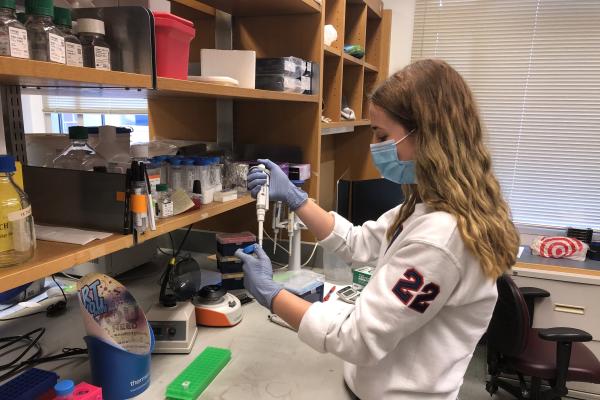
Aria Fasse conducting research on drug resistance in melanoma at the Shaffer Lab.
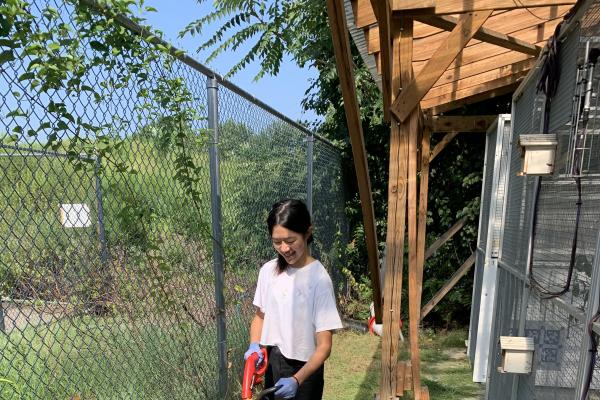
Shirley Li working in the Schmidt Lab, studying songbirds.
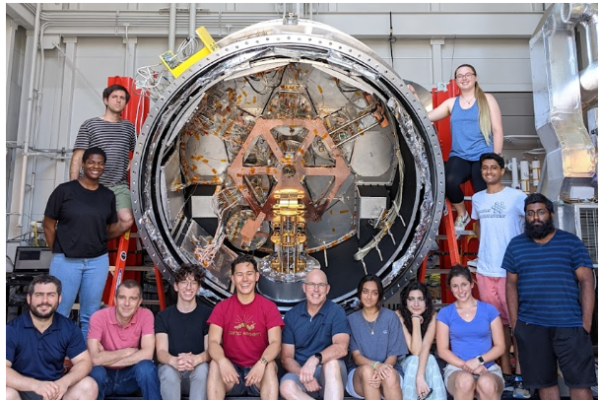
Alexandra Weinstein and the Devlin Lab team with the Simons Observatory Large Aperture Telescope Receiver
Undergraduate Research Projects
CURF served as a resource for me since my first year when I talked to advisors who helped me find a research opportunity at CHOP and a summer research fellowship through PORES. CURF further helped me shape my interests and goals, and ultimately, applying for and receiving the Truman Scholarship! Louis Lin (COL '20)
Our Mission
The Center for Undergraduate Research and Fellowships (CURF) supports all students as they pursue transformative experiences through fellowships, scholars programs, and undergraduate research. CURF promotes connections between faculty and students, encourages mentorship, and educates the Penn community about opportunities for all students and alumni.
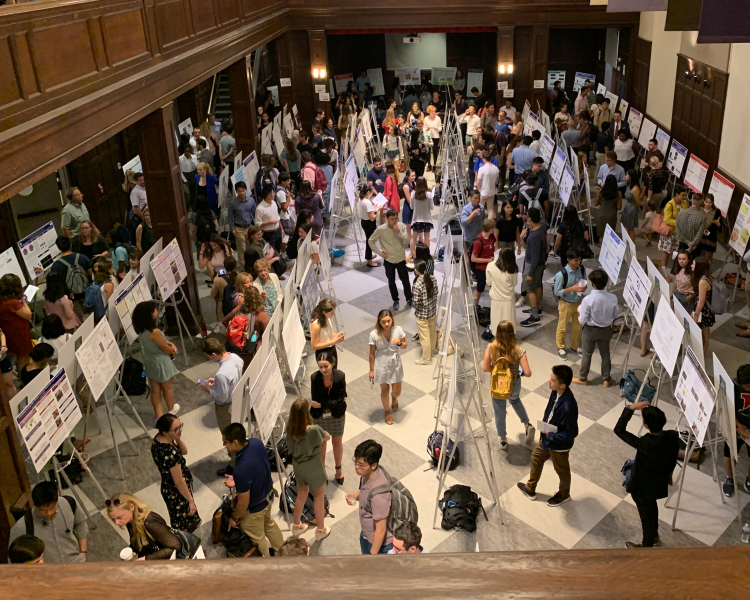
Meet Our Team!
Whether in-person at 3539 Locust Walk or virtually, the CURF team is ready to help you learn about all the opportunities you have to get involved with research or apply to competitive fellowships.

An official website of the United States government
Here’s how you know
Official websites use .gov A .gov website belongs to an official government organization in the United States.
Secure .gov websites use HTTPS A lock ( Lock A locked padlock ) or https:// means you’ve safely connected to the .gov website. Share sensitive information only on official, secure websites.
https://www.nist.gov/surf
Summer Undergraduate Research Fellowship (SURF)

2024 SURF Colloquium
August 13-15, 2024
Locations: NIST Gaithersburg, NIST Boulder, Center for Marine Debris Research in Waimanalo, HI, and Virtually on Zoom
- 2024 SURF Colloquium Schedule - includes Zoom links for virtual attendees
- 2024 SURF Abstract Book
You are invited to attend the Summer Undergraduate Research Fellowship (SURF) Colloquium scheduled August 13-15, 2024 at NIST Gaithersburg Bldg 101, NIST Boulder various buildings, and virtually on ZoomGov. The SURF program culminates in a three-day colloquium (August 13 - 15) where the undergraduates describe their research accomplishments in short oral presentations. The SURF Colloquium begins with a plenary session on the morning of Tuesday, August 13, in Gaithersburg’s Green Auditorium, Boulder’s Bldg 81 Rm 1A116, and on ZoomGov. It continues that afternoon with parallel sessions. Additional parallel sessions will be held Wednesday, August 14, and Thursday, August 15. This summer's 152 undergraduates come from over 90 different schools and represent states and territories across the United States.

NIST summer interns have improved MRI technology, studied medications, and more. Spend your summer with us for 11 weeks of hands-on lab experience with world-class mentors in one of NIST’s six labs or other offices.
What You’ll Get
In 2024, we expect to provide $7,810 for the 11-week summer stipend ($710 per week). If you’re participating in person, you’ll need to find your own housing. We will share a list of affordable housing options when you’re selected. Limited financial assistance for housing ($4,500) and travel (up to $500) is available for students who need to relocate for the summer. In-person local participants may receive support for commuting (varies) assistance.
Eligibility and Requirements
You must be a U.S. citizen or U.S. permanent resident able to provide proof on your application. You must be a full-time undergraduate student in an accredited two-year or four-year college in the U.S. First-year undergraduates and graduating seniors (seniors participating in the Winter or Spring Commencement) are eligible and encouraged to apply to the program.
Participants will work 40 hours per week (Monday through Friday during business hours). You must also:
- Pass a background check
- Provide proof of health insurance
- Receive your payments by direct deposit
- Be at least 18 years old
How to Apply
Apply to the SURF program through USAJobs. All documents are required and must be submitted for consideration. Please submit your documents as PDF files if possible. Detailed instructions are available in the program FAQs .
surf [at] nist.gov (surf[at]nist[dot]gov)
Taking Measure Blog Posts from SURF Students

A Summer of Science: NIST Interns’ Stories of Their Time in the Lab

Clear as Glass: Studying Drug-Delivery Materials as a NIST SURF Student

Working to Improve Small-Scale MRIs: My Summer as a SURF Student at NIST

The NIST Summer Undergraduate Fellowship Program Goes Virtual
- International and Academic Affairs Office [email protected]
Our Summer Research Fellowships
Georgetown University’s Center for Research & Fellowships administers two types of summer fellowship models to support undergraduate researchers across all Georgetown majors:
- One that supports independent research projects
- One that supports mentored research projects.
Generally, student projects are either independent or mentored. Therefore, students should submit an application for only one of these two models.
Information about the academic year 2024-2025 application cycle will become available during the fall 2024 semester.
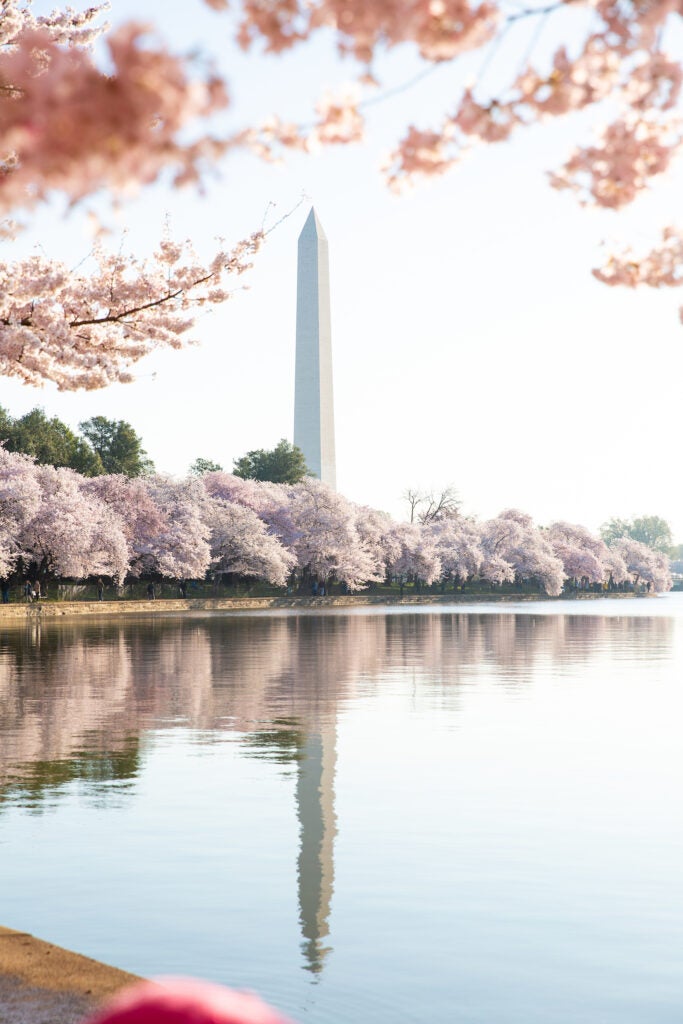
Independent Research
Undergraduate students who have developed a research project that requires a minimal level of faculty supervision throughout the course of the summer should apply for an independent research fellowship.
Students proposing this type of research must have faculty sponsors who help guide them throughout the course of the project, including providing expert advice about its development and implementation. However, the student-researchers are responsible for developing the project (e.g., question/s, method/s, and timeline) and directing it through its completion.
Note: If the project includes human subjects research, faculty sponsors must agree to serve as the student-researchers’ responsible participant as required by Georgetown University’s Institutional Review Board. If the project involves animal research, faculty sponsors must ensure the student-researchers comply with Georgetown’s policies.
The CRF houses two programs for independent research:
- Kalorama Fellowship (Current first-year, sophomore and junior students in the humanities, social sciences, and environmental sciences can apply for up to $5,000. Students working on part-time Kalorama awards may receive up to $2,500.)
- Lisa J. Raines Fellowship (Current sophomore and junior students in any major can apply for up to $5,000. Projects may be collaborative with two student researchers; if that is the case, each student on a collaborative project will receive up to $2,500. Raines Fellows must attend a weekly summer seminar.)
Mentored Research
Undergraduate students who are working on a professor’s research project or a closely related one of their own design and require a significant level of faculty supervision throughout the course of the summer should apply for a mentored research fellowship.
Students proposing this type of research must have faculty mentors who are directly involved in the development of the project and its ongoing implementation.
Note: If the project includes human subjects research, faculty mentors must agree to serve as the student-researchers’ responsible participant as required by Georgetown University’s Institutional Review Board. If the project involves animal research, faculty mentors must ensure the student-researchers comply with Georgetown’s policies.
The CRF houses one mentored model:
SMURF – Summer Mentored Undergraduate Research Fellowship (Current first-year, sophomore, and junior students in any major can apply for up to $5,000 for a full-time project. Students working on part-time SMURF awards may receive up to $2,500.)
Additional Opportunities
Provost’s Distinguished Undergraduate Research Fellowship (Current sophomore and junior students in any major can apply for up to $6,000. Applicants to Kalorama, Raines, and SMURF, with a GPA of 3.85 or higher, can opt in for consideration to be Provost’s Fellows.)
Eligibility and Rules
- Applicants must be currently enrolled Georgetown University undergraduates to apply and during their participation in the fellowship program.
- CRF-sponsored summer research fellowships are an equal opportunity to all current Georgetown University undergraduates regardless of immigration status.
- In general, acceptance of a CRF-administered fellowship award precludes students from having full-time summer employment or another summer research award.
- Students can only participate in one CRF-sponsored fellowship if admitted to multiple.
- Full-time projects should equal about 40 hours each week during the 10 weeks of summer research. Part-time projects should equal about 20 hours each week during the 10 weeks of summer research. Collaborative projects (Raines only) should equal about 20 hours each week for each of the two student collaborators during the 10 weeks of summer research – totaling 40 hours each week for 10 weeks.
- Students proposing part-time Kalorama or SMURF fellowship projects can submit either a 5-week (consecutive) timeline of full-time research work or a 10-week timeline of part-time research work. Raines Fellows participating in a collaborative project must be able to attend all 10 weekly summer seminars.
- Students must have a Georgetown Supplier ID established at the time of application. ( If possible, it is best to select the ACH/direct deposit option. Old mailing addresses [e.g., a previous residence hall address] will significantly delay payment. ) If you previously applied for a Supplier ID, check that it is still active on the Office of the Chief Financial Officer’s website . If the Supplier ID is inactive, you will need to apply for a new one.
- Any non-US citizen who receives funds through the summer research fellowship programs must complete a Glacier account .
- Summer research grant awards administered by the Center for Research & Fellowships cannot be used for academic course credit.
- All application materials, including the letter of recommendation, must be submitted by the deadline to be considered.
- Applicants proposing to conduct research outside of the United States as a part of their project must complete the steps outlined on this webpage , before their proposed travel begins, in order to be considered for award funding. Please email [email protected] with the results of the process. This official authorization is necessary in order for CRF to initiate payment to summer fellows.
- Students who are accepted into one of the fellowship programs agree to turn in a research project following the guidance outlined in their award letters, as well as to follow all requirements outlined in the award letter.
- Students who are admitted to a fellowship program must sign and date their award letter, and return it to the CRF. Award letters will be sent via DocuSign.
Payment Information
More information about payments will be included in accepted students’ award letters.
- Having an active Supplier ID with up-to-date information (e.g., direct deposit, mailing address) and having signed and dated the award letter will help ensure payment occurs in a timely way. We highly recommend that you set up direct deposit if this is an option.
- Note: If you choose to have a check mailed to you, it is crucial that you have an up-to-date mailing address. Having an old mailing address will significantly delay receipt.
Contact Information
Please write to [email protected] with questions or to join our listserv.
(Updated August 2024)

Undergraduate Research Fellows Program
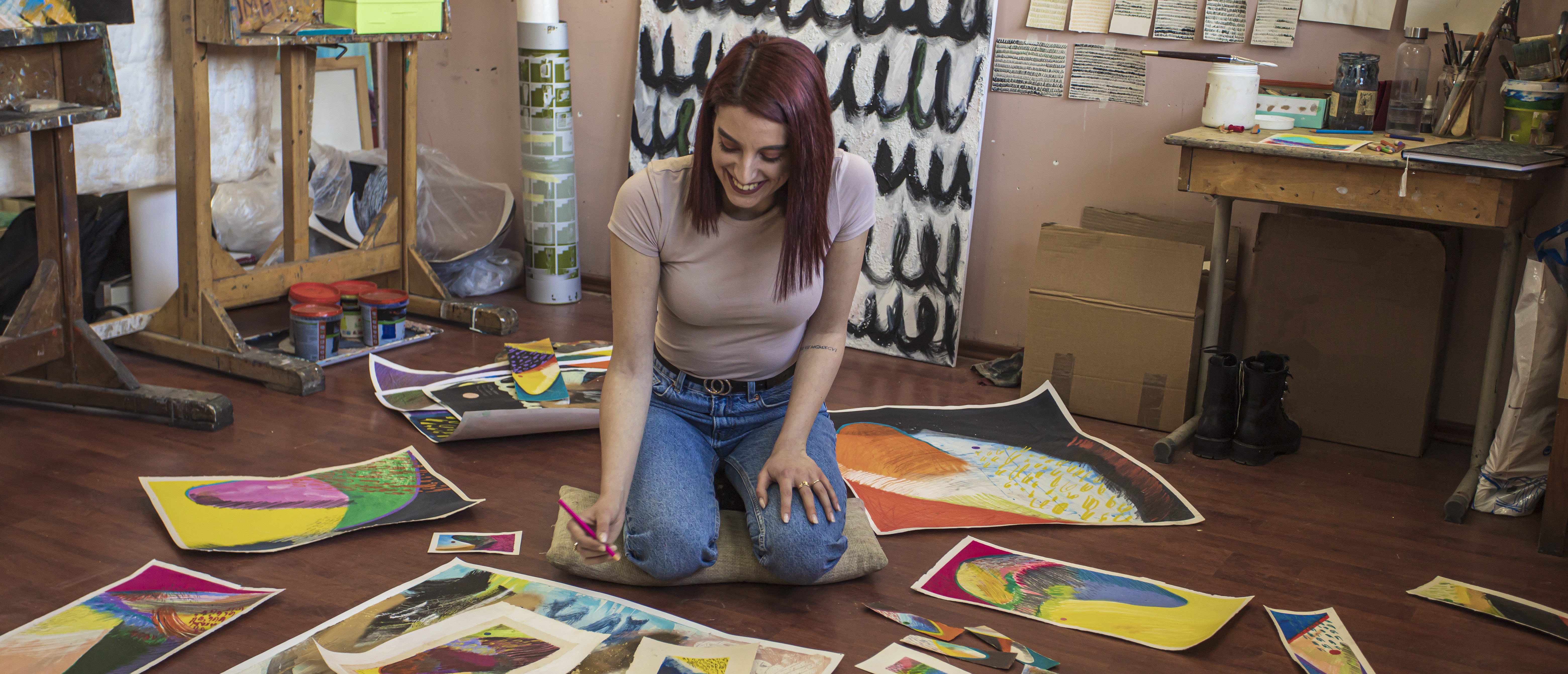
The Undergraduate Research Fellows Program (URFP) is directed through the Office of the Dean for Undergraduate Education and administered by the Undergraduate Research Center–Humanities, Arts, and Social Sciences. The URFP scholarship supports students doing a multi-quarter research or creative project under the mentorship of a UCLA faculty member during winter and spring quarters.
URFP recipients:
- Receive a $3,000 scholarship
- Enroll in a Student Research Program (SRP) 99 course or an upper-division departmental research contract course for both winter and spring quarters
- Enroll in Research Practice 103: Student Research Forum from 4-5:50 p.m. on Mondays and Wednesdays in winter quarter
- Present their research at Undergraduate Research Week or submit a summary of their research at the end of spring quarter
- Enroll in a minimum of 12 units in winter and spring quarters (note: students completing their URFP research requirements through SRP 99 courses must enroll in a minimum of 12 units before enrolling in the SRP 99 courses)
URFP ELIGIBILITY
- 2.5 GPA or higher
- Has not already participated in URFP
- Commitment to completing a research or creative project with a faculty mentor for winter and spring quarters
- While financial need is not required, some awards are for students with established financial need
- US citizens, permanent residents, undocumented, DACA, AB540, and international students are eligible to apply
- Cannot be a concurrent recipient of a research program scholarship while participating , including those through the Undergraduate Research Centers, AAP, College Honors, the Center for Community Learning, Education Abroad Programs, or academic departments
HOW TO APPLY
Application Deadline : November 15, 2023 at 11:59 p.m.
Click here for detailed instructions on how to approach each aspect of the application: URFP Application Instructions .
Submit an Undergraduate Research Fellows Program (URFP), Mellon Mays Undergraduate Fellowship (MMUF), and McNair Research Scholars Program application (available early to mid-October). Visit MyUCLA, click on “Campus Life,” and select “Survey” to access the application.
The application consists of 3 components:
- Research proposal
- Personal statement
- Confirmation of mentorship from your faculty mentor. Be sure to ask your faculty mentor early and provide them with the URFP Mentor Confirmation Form .
If you are also applying to MMUF or McNair, your mentor may submit the letter of recommendation for either program to [email protected] instead of completing the URFP Mentor Confirmation Form.
If you are conducting a creative project, you may submit supporting documents such as a portfolio of your work to [email protected] .
If you are conducting an interdisciplinary project, visit our FAQ to determine which URFP (URC-HASS or URC-Sciences) you should apply to.
If you would like feedback on your application materials, you can schedule an advising appointment with a Graduate Research Mentor to discuss your project. The Undergraduate Research Center also hosts URFP info sessions and workshops on how to write a research or creative proposal. Click here for a list of current workshops and info sessions.
Incomplete applications will not be reviewed.
Undergraduate Research Center – Humanities, Arts, and Social Sciences A334 Murphy Hall Monday through Friday 8:30 a.m. – 4:30 p.m. (310) 825-2935 [email protected]
- Find an Opportunity
- Student Stories
- For Faculty
- Fulbright Week 2024
- Research Symposium
- Humanities Research Scholars Program
- Laidlaw Scholarship
- How to Apply
- MMUF Fellows and Alumni
- Current Rabi Scholars
- Publications
- Rabi Faculty Committee
- Current Science Research Fellows
- C.P. Davis Scholars
- Egleston Scholars
- Program for Academic Leadership and Service (PALS)
- Research Ambassadors and Peer Advisors
- Help & Advice
What is a Fellowship?
Fellowships are funded, short-term opportunities, that can last from a few weeks to a few years. They can be focused on professional, academic and/or personal development. Fellowships are sponsored by a specific association, organization, institution, or government which sets the eligibility requirements. These opportunities encompasses nationally competitive grants, scholarships, and other funding opportunities.
Fellowships are often designed to support various activities, including:
- Research, either independent or as part of a larger project
- Developing new community-based organizations
- Training within a specific field
- Opportunities to further explore a particular field of work
- Graduate Study
There are several benefits to participating in a fellowship. Fellowships can provide opportunities for cultural immersion, expanding both professional and personal networks, experiential learning, and professional development - to name just a few. Even the process of applying is beneficial to students, helping them clarify goals and interests, articulate their values and plans for the future, improved presentation and interview skills, and much more.
Related Articles
- What is Research?
- Finding a Fellowship or Research Opportunity
- Funding for Undergraduate Research
- Applying for Fellowship(s) or Research Opportunity
- Types of Research Opportunities
- Undergraduate Research by Department
- Finding a Faculty Mentor
- Resources for Research & Publishing
- Frequently Asked Questions (FAQ)
Undergraduate Research Fellowship
The Undergraduate Research Fellowship ( URF ) provides up to $1,000 in support for specific scholarly research projects conducted by full-time UT undergraduate students enrolled in any department. These fellowships are intended to cover costs associated with academic research projects proposed and written by student applicants and undertaken with the supervision of a university tenured, tenure-track, or professional-track faculty member or full-time research staff. Some restrictions apply.
Learn more about the URF :
- Before Applying: Eligibility, evaluation, research approval, and deadlines
- Using URF Funds: Keep in mind that URF funds can only be used in certain ways
- Past Recipients
Click here to download a proposal template . Refer to our guidance about applying for research funding .
Once you have submitted your documents, your faculty supervisor will be forwarded an email to submit their recommendation letter and approval of the proposal. If you do not know your faculty member’s EID and email, you can find them through the directory .
APPLY FOR THE URF
URF Info Sessions
Find out more about the URF application process, as well as general tips for applying to other sources of funding, at our funding info sessions. Info sessions typically take place on Zoom in the weeks before the URF deadline; to find out more and receive the Zoom information, please register in advance.
- Skip to primary navigation
- Skip to main content
Research Advancing Justice

Giovanna Calderon
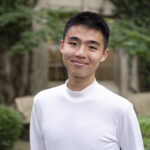
Katherine Gottemoller
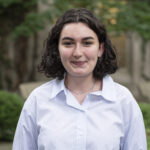
Andrada Nicolae
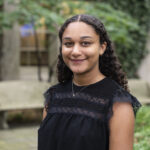
Mikayla Woods
Abf summer undergraduate research fellowship program.
In addition to its award-winning research, the ABF is known for building a pipeline of diverse legal scholars and lawyers through its undergraduate fellowships. Formally known as the Montgomery Summer Research Diversity Fellowship Program, the ABF Summer Undergraduate Research Fellowship (SURF) program allows undergraduate students from diverse backgrounds who are considering careers in the field of law or social science to gain a hands-on learning experience for eight weeks during the summer. Established in 1988, the SURF program promotes broader inclusion in the legal profession by breaking down barriers often experienced by individuals from diverse backgrounds that are traditionally underrepresented in the legal profession.
Each Fellow works closely with an ABF Research Professor on their research, affording them the opportunity to be mentored by and take part in sociolegal research with experienced scholars. Fellows gain unparalleled insight into a career in law through visits to the Cook County Criminal Court and to law firms including Banner Witcoff, Sidley Austin LLP, and Kirkland & Ellis. They attend a weekly seminar on social science research and meet with admissions representatives from local law schools. They also learn about legal aid and advocacy through field visits to social justice nonprofits, including the National Immigrant Justice Center, the Bluhm Legal Clinic, and the Uptown People’s Law Center. In 2019, the Fellows even witnessed high-level discussions from legal leaders as they attended the first Legal Summit of the Americas, where Hispanic legal leaders from the United States, Canada, and Mexico gathered to discuss international business and environmental and immigration issues.
“Visiting the Cook County Circuit Court was very interesting,” said Lisette Gonzalez-Flores, 2019 SURF alum. “It’s the first time I saw a trial in action, seeing witnesses on the stand, and getting a firsthand view of what public defenders do and of how the courts affect marginalized communities. I also enjoyed my time at [law firms] because the attorneys were so welcoming and knowledgeable about the legal field. I have never known much about corporate or IP law, but it certainly piqued my interest as a potential career path.”
Many SURF alumni go on to pursue academic careers in the social sciences and law as legal practitioners, deans, and professors of law as well as in the fields of government, social policy, and business. Notable alumni include Mariano-Florentino Cuellar, California Supreme Court Associate Justice (1992 alum); Erika George, Law Professor at the University of Utah College of Law (1992 alum); Danielle Holley-Walker, Dean at Howard University School of Law (1995 alum); and Grey Mateo-Harris, Partner at Barnes & Thornburg LLP (2004 alum).
The ABF is proud to lead the community and the nation in fostering the next generation of scholars who can be the catalysts for broader diversity, equity, and inclusion in the legal profession.
The SURF program has received generous support the Kenneth F. and Harle G. Montgomery Foundation, the Law School Admissions Council (LSAC), Walmart, Kirkland & Ellis, LLP, AT&T, and several individual donors.
To view a list of the past Fellows, visit the Former Summer Undergraduate Research Fellows page.
Application Deadline

Undergraduate Research Fellows Program (URFP)

Click here to read The Daily Bruin’s October 2023 article on the URFP!
UCLA Undergraduate Research Fellows Program supports Bruins pursuing research

The URC-Sciences’ 2024-2025 Undergraduate Research Fellows Program (URFP) is a two-quarter program that supports UCLA students who are conducting a life science, physical science, or engineering research project with a UCLA faculty during Winter 2025 and Spring 2025.
The URFP is designed to support students who are early-on in their undergraduate research experiences. Students will enroll in RES PRC 103 – Student Research Forum in Winter 2025 (T/R, 2:00-4:00 PM), an academic and professional development seminar for undergraduate STEM researchers. All students also qualify for academic scholarships up to $3,000. Applications are accepted in Fall 2024.
This program is distinct and separate from the URC-HASS Undergraduate Research Fellows Program. Students conducting research projects in the humanities, arts, or social sciences should apply to the URFP offered by the Undergraduate Research Center – Humanities, Arts, and Social Sciences .
Students conducting interdisciplinary research should refer to this webpage to determine which Undergraduate Research Center’s URFP is most appropriate to apply to.
ELIGIBILITY
- 2.5 GPA minimum
- Must have a current life science, physical science, or engineering research project with a UCLA faculty
- Expected graduation date of Spring 2025 or later
- Have not completed a prior year’s Undergraduate Research Fellows Program (URFP) or Undergraduate Research Scholars Program (URSP), and not concurrently participating in the 2024-2025 Undergraduate Research Scholars Program (URSP)
- No citizenship requirement – undocumented and international students are welcome to apply
- Visiting students are not eligible for this program
- Note: Students who will 1) be employed by their research lab/group or 2) be receiving scholarship support for their research during Winter and Spring 2025 are eligible to apply to the URFP. However, they will only be considered for the RES PRC 103 Seminar Course and are not eligible to receive the URFP’s financial scholarship support.
PROGRAM REQUIREMENTS
- Maintain full-time student status (enrolled in 12 units minimum) during Winter and Spring 2025
- Conduct your proposed research project during winter and spring quarters with your UCLA Faculty Research Mentor
- Enroll in an SRP-99 or departmental 196, 198, or 199 research course with your UCLA Faculty Research Mentor for both quarters
- Enroll and receiving a passing grade in RES PRC 103 (Instructor: J. Avila) during Winter 2025. This course is mandatory. Students who are accepted into the URFP but do not enroll or complete the course will be dismissed from the program. Do not apply to the URFP if you have conflicting obligations with RES PRC 103 .
- Present your research at the Undergraduate Research and Creativity Showcase in May 2025, or
- Submit a comprehensive research paper at the end of Spring 2025
- Submit a thank you letter to the donor(s) who supported your scholarship
- Complete the exit survey in Spring 2025
RES PRC 103
Course Description: Lecture/activities, four hours. Designed to promote deep engagement in university research, including instruction on securing research opportunities, skills necessary for research and professional success, exploring research internships on and off campus, and communication of research across all disciplines. P/NP grading.
RES PRC 103 is an academic and professional development seminar for undergraduate STEM researchers. Students who are accepted into the URFP are required to enroll and complete RES PRC 103 in Winter 2025. The course is taught by the URFP Director, Dr. Jorge A. Avila. Meeting times for Dr. Avila’s section are T/R, 2:00-4:00 PM. Students must enroll in the course section (Section 1). Other RES PRC 103 sections are offered but are reserved for students participating in other academic scholarship programs.
SCHOLARSHIP/FUNDING
All students qualify for academic scholarships up to $3000. Scholarships are disbursed through UCLA Financial Aid and Scholarships in two equal installments, once at the beginning of each quarter. Scholarship payments are applied to BruinBill.
* Important Financial Aid Implications : If you are receiving financial aid, your package may be adjusted so you do not exceed your financial need or cost of attendance. Check with UCLA Financial Aid and Scholarships to see if you can accept this scholarship. Applicants do not need to qualify for or be receiving financial aid to be eligible for the URFP scholarship.
APPLICATION
- October 14 – November 15, 2024
- The application can be accessed as a Survey on MyUCLA under the “Campus Life” tab during the application period. See the Application page for more information.
Abby Warner Program Representative [email protected]
Undergraduate Research Fellowship
Description.
The aim of the Undergraduate Research (UGR) Fellowship Program is to motivate and empower undergraduate students to pursue their research. Undergraduate students may request up to $700 in Fellowship funding to help offset the cost of supplies, conference presentations, publication and travel to field sites.
Fellowship Application Process
Students submit an application through GetInvolvedUC . The application form requires the following information:
- Applicant name, email address and M-number
- Majors/Minors/Certificates
- Research Advisor name, email address and department
- Name and email address of your department’s Undergraduate Director and/or Department Head
- Name and email address of the Business Administrator of your Research Advisor’s department
- Confirmation that the Business Administrator is willing to receive the fellowship, allocate the funds to you, and maintain receipts for expenses
- Title of research project
- Main research question(s): 1-2 sentences
- General research strategy: 1-2 sentences
- New knowledge/understanding or creative/technical innovation produced (or anticipated)
- Type of research activity the fellowship will support (choose from Supplies, Conference Travel, Publication, Travel to Field Site, Other; if “other”, please explain)
- Funding amount requested (up to $700)
- Estimated budget (list each item needed and estimated cost of each item; do not include items covered by other sources)
- Interest in presenting research at UC’s Undergraduate Scholarly Showcase
Fellowship Selection Process
Applications will be considered on a rolling basis by a joint committee consisting of representatives from the University Funding Board, Undergraduate Student Government and the Undergraduate Research Society.
Fellowships will be awarded to students who clearly describe their research project and needs. If the research project or needs are unclear, the student will have the opportunity to revise and resubmit the application. Fellowships will be provided on a first-come, first-served basis as long as funding remains.
The annual budget for fellowship allocation is $25,000. To ensure disciplinary inclusion in the selection process, no more than $2,500 will be allocated to majors in a single department and no more than $15,000 will be allocated to students in STEM disciplines. If AHSS (arts, humanities and social sciences) majors are underrepresented in the applicant pool, special promotions targeting these populations will be implemented.
View Fellowship Allotments to see if funding is available for your major (UC login required).

Today’s Hours
7am to 11pm
Featured services

- Estelle & Melvin Gelman Library
- Eckles Library
- Virginia Science and Technology Campus Library
- Himmelfarb Health Sciences Library
- Jacob Burns Law Library
- Arthur D. Jenkins Library

- Undergraduates
- Graduate Students
- Faculty & Instructors
- Off-Campus Students

Center for Undergraduate Fellowships and Research
Housed in Gelman Library, a unit within Libraries and Academic Innovation, the Center for Undergraduate Fellowships and Research provides individualized and group mentorship to all GW students and alumni pursuing national awards, fellowships, and undergraduate research opportunities.
Empowering scholars through culturally responsive mentoring, the Center for Undergraduate Fellowships and Research will serve all George Washington University undergraduates and alumni pursuing intellectual development through scholarship and fellowship competitions and undergraduate and postgraduate research participation.
To become a premier academic unit at GW and in the District of Columbia that nurtures diverse thought leaders to become global citizens who positively change the world through their scholarship.
Learning Outcomes
After working with staff in the Center for Undergraduate Fellowships and Research on a national award application or research opportunity, you will:
- develop a well-constructed working knowledge of undergraduate and postgraduate nationally competitive awards and research experiences that serve as funding sources for academic and professional opportunities;
- effectively identify opportunities that inform and enhance scholarly productivity such as undergraduate research, internships, community leadership, language study programs, study abroad, and civic engagement;
- write a personal statement that demonstrates consideration of academic and career goals to a specific audience;
- develop verbal communication skills that demonstrate consideration of academic and career goals to a specific audience;
- enhance career self-efficacy to promote deliberate decisions; and
- develop or further develop a growth mindset.
Email us at [email protected] .

Start the Process
The CUFR team mentors undergraduates and alumni throughout the national award application process. After determining the opportunities that best align with your goals, we offer a range of support from essay feedback to mock interviews.

Explore Pathways to Research
Students from all majors have the opportunity to engage in research or creative inquiry. Whether you conduct independent, course-based, faculty or staff-led research, or a Research Experiences for Undergraduates (REU), you can make a scholarly or artistic contribution to knowledge.

Find Your Award
CUFR offers scholarships to undergraduate students and alumni. We encourage you to review the scholarship details and eligibility requirements of each award and apply to those that are suited to your experiences and aspirations.
An official website of the United States government
Here's how you know
Official websites use .gov A .gov website belongs to an official government organization in the United States.
Secure .gov websites use HTTPS. A lock ( Lock Locked padlock ) or https:// means you've safely connected to the .gov website. Share sensitive information only on official, secure websites.

- Search Awards
- Recent Awards
- Presidential and Honorary Awards
- About Awards
- How to Manage Your Award
- Grant General Conditions
- Cooperative Agreement Conditions
- Special Conditions
- Federal Demonstration Partnership
- Policy Office Website
| | |
| March 9, 2020 | |
| March 9, 2020 | |
| 1950126 | |
| Standard Grant | |
| Tomislav Pintauer [email protected] �(703)292-7168 CHE �Division Of Chemistry MPS �Direct For Mathematical & Physical Scien | |
| April 1, 2020 | |
| March 31, 2024�(Estimated) | |
| $312,000.00 | |
| $312,000.00 | |
| Nizkorodov Mang | |
| 160 ALDRICH HALL IRVINE CA �US �92697-0001 (949)824-7295 | |
| Rowland Hall CA �US �92697-2025 | |
| UNDERGRADUATE PROGRAMS IN CHEM | |
| 4900 | |
| 4900 | |
| 47.049 |
This Project Outcomes Report for the General Public is displayed verbatim as submitted by the Principal Investigator (PI) for this award. Any opinions, findings, and conclusions or recommendations expressed in this Report are those of the PI and do not necessarily reflect the views of the National Science Foundation; NSF has not approved or endorsed its content.
Training of undergraduate students in chemistry is essential for maintaining US leadership in science and technology. To help achieve this goal, the Chemistry Department at the University of California, Irvine (UCI) ran its Chemistry Summer Undergraduate Research Fellowship (Chem-SURF) program in the summers of 2021, 2022 and 2023. Talented undergraduate students were recruited from US colleges which lacked their own research infrastructure. There were 11 participants in 2021, 8 participants in 2022, and 8 participants in 2023. This group of 27 participants was highly diverse – there were 16 female participants and 13 underrepresented minorities. Our training Chem-SURF relied on quality mentorship from faculty, graduate students and peer-mentors; supportive community; and hands-on training in a large selection of research projects. The REU students were able to participate in exciting and transformative research in well-equipped research laboratories with state-of-the-art equipment and facilities. They also participated in workshops and attended seminars designed for their professional development, including ethics training, graduate school and fellowship application preparation, and communication skills. All participants gave oral presentations of their work in the final research symposium. The majority of the participants elected to pursue graduate training after completing the program, and a few of them came to our own graduate program. Analysis of exit interviews with the program participants demonstrated that the program successfully achieved its stated outcomes, specifically: (1) increase in students’ application of knowledge, skills, and ownership of research project; (2) increase in students’ global perspectives of research and knowledge of career pathways; (3) increase in STEM identity and self confidence; (4) diverse student cohort; (5) increase in students’ collaboration and leadership skills; (6) increase in students’ preparedness to enter STEM graduate school and/or career; (7) increase in percentage of students who plan to attend STEM graduate school; (8) increase in mentoring skills of faculty and graduate student mentors.
Last Modified: 06/02/2024 Modified by: Sergey Nizkorodov
Please report errors in award information by writing to: [email protected] .

- About the New Semester
- e-learning Blog
- HKU Online Learning & MOOCs
- Governance and Planning
- Ug Curricula
- TPg Curricula
- Code of Academic Conduct
- Forms of Learning
- Quality Assurance and Quality Enhancement
- MOOC Development
- Collaborative Online International Learning (COIL)
- Scholarships
- Teaching Development Grant (TDG)
- Student Feedback on Teaching and Learning (SFTL)
- Student Learning Experience Questionnaire (SLEQ)
- Other Institutional Surveys
- Credits for Out-of-classroom Experiences
- Teaching and Learning Innovation Centre
- Use of Inclusive Language in Academic Work
- To Protect Educational Materials
- Flexible Curriculum Structure
- Common Learning Experiences
- Undergraduate Research Fellowship Programme
- Common Core
- University-wide Academic Advising System
- Academic Advising and Scholarships Office (AASO)
- AASO Services
- Gallant Ho Experiential Learning Centre
- Video Showcase
- Funding Support
- Common Purpose Leadership Development Programme
- Credit Award Scheme for Out-of-classroom Learning Experience
- HKU Horizons Experience Award
- HKU Horizons Internship Programme and HKU Horizons Corporate Experiences Programme
- Horizons Project Mingde
- Laidlaw Scholars Programme
- The Hong Kong Project (For Students)
- The Hong Kong Project (For Academic Supervisors and Community Partners)
- Wu Zhi Qiao/Bridge to China
- Academic Advising
- Common Core Teachers Support
- HKU’s Quality Manual
- Teaching Development Grants (TDG)
- Teaching Excellence Award Scheme (TEAS)
- Teaching Exchange Fellowship Scheme
- UGC Teaching Award

Undergraduate Research Fellowship Programme (URFP)

The URFP is a prestigious programme aimed to enhance students’ learning experience and to nurture the next generation of researchers/scholars. It offers opportunities for academically outstanding undergraduate students to undertake research under the guidance and supervision of academics who have a strong research track record and experience in training research postgraduate students. Students enrolled in the URFP are required to undertake a research study. If research internship forms an essential part of the research study, the enrolled students will be considered for awards for undertaking such research internships locally, in the Mainland or overseas.
The URFP participants are eligible to enrol in specified postgraduate courses. Successful completion of the URFP will be recorded in the students’ transcripts, and those who perform well under the URFP will be considered for early admission to research postgraduate programmes of the University.
For 2022-23, 46 overseas and local research internships were awarded and about 140 students have been enrolled under the URFP.
Application
- Students who are in the 90th percentile of top students in a study programme; or
- Students who have a cumulative GPA of 3.50 and above.
Sample Research Proposals
- Engineering
Quick Links
- Contact person at your Faculty
- Student Internship Report Form
- Undergraduate research opportunities at the Faculty of Science
- Overseas/Mainland Budget Template
- Overseas/Mainland Claim Form
2022-23 Poster Session
Please click here to view some of the student posters. from 2016 to 2022
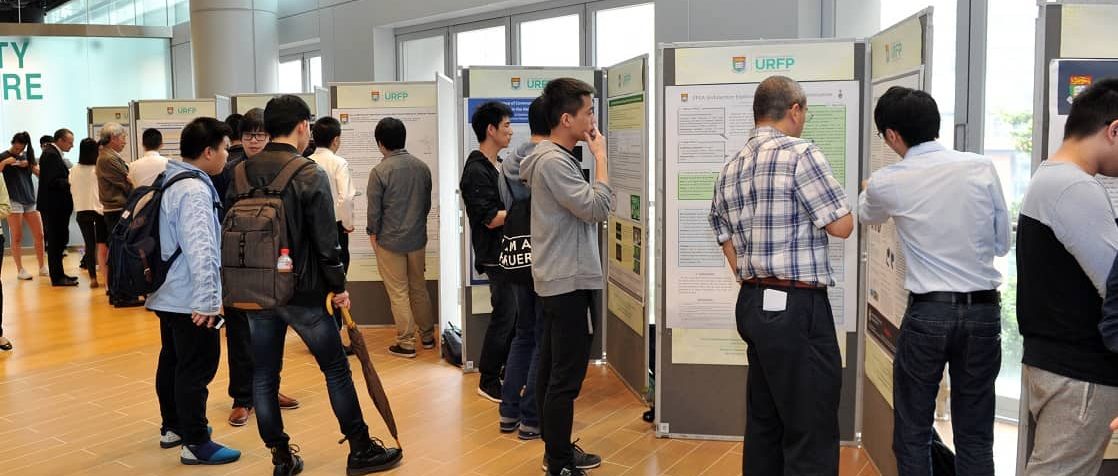
What did the participants say?
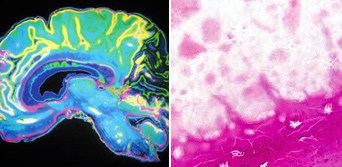
“Through working with the research team in the Centre for Neurogenic Communication Disorders Research of the University of Queensland, I had learnt a lot from their cutting-edge vision. I had learnt to think ahead and be bold to investigate the unexplored areas in the field.”
“I am now confident enough to work individually on some advanced skills like cell culturing, western blotting, cell staining, cell imaging […] also I understand how science is done, how an experiment is being designed, how to face experiment failure, how to analyze and evaluate after failing and how to cooperate with different people in the laboratory who are with different strength and personality.”
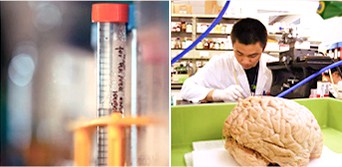
“I ended my summer research internship with an empirical study of fitting threshold models to Veilleix’s predator series. This is a valuable experience for me because it allowed me to take the initiative to find the problem, to apply the knowledge I learnt, and to solve the problem independently.”
Host Institutions of Research Internships Awarded under the URFP
- Bielefeld University
- University of Bordeaux
- Brunel University London
- University of Cambridge
- National Center for Scientific Research
- Eindhoven University of Technology
- French Institute for Research in Computer Science and Automation
- University of Glasgow
- Imperial College London
- King’s College London
- National Research University Higher School of Economics
- University of Oxford
- University College London
- Vrije Universiteit Amsterdam
- University of Warwick
- City University of Hong Kong
- East China University of Science and Technology
- The University of Hong Kong
- Nanyang Technological University
- National Chung Hsing University
- National Tsing Hua University
- National University of Singapore
- Tsinghua University
North America
- University of British Columbia
- University of California (Berkeley, Davis, Irvine, Los Angeles, San Diego, Santa Barbara)
- Cornell University
- Dalhousie University
- Georgia Institute of Technology
- University of Illinois
- Princeton University
- Rockefeller University
- University of Southern California
- Standord University
- University of Toronto
- University of Virginia
- Washington University in St. Louis
- University of Waterloo
- University of Wisconsin-Madison
- Yale University
- University of Canterbury
- Edith Cowan University
- University of Queensland
- University of Sydney
- Victoria University
Krieger School of Arts & Sciences Undergraduate Research, Scholarly & Creative Activity
Woodrow wilson fellowship.

- For Current Fellows
- Wilson Fellowship Projects
The Woodrow Wilson Undergraduate Research Fellowship Program provides funding and support to a select group of Krieger School undergraduates. These students are selected in their first year, and will carry out an independent research project over a period of three years. The program enables students to pursue unique research opportunities that exceed what is typically available to undergraduates.
Fellowship Details
Each fellow receives up to $10,000 of funding over three years to be spent on research costs, which may include travel, equipment, and use of archives or laboratories. Fellows focus on their undergraduate fields of specialization to pursue one or more intensive research projects, crafted in conjunction with URSCA staff and the fellow’s faculty mentor. Fellows are expected to dedicate at least two full summers to their research projects.
Fellows meet regularly with URSCA staff and attend seminars and group events focusing on research skills and professionalization. Seminar topics may include:
- Finding a Mentor
- Planning Your First Mentor Meeting and Setting Goals
- Writing and Managing a Grant Budget
- Networking and Conferences
- Conference Poster Design
- Writing Application Essays for Graduate and Professional School
Senior fellows are required to present the results of their research to the Hopkins community at the annual URSCA Symposium, held in April or May. Additionally, a portion of each fellow’s award must be dedicated to the dissemination of their research at a professional conference.
Woodrow Wilson Fellowship Poster Symposium
The Johns Hopkins University Woodrow Wilson Fellows present their final projects at a May 2018 event.
- Campus News
- Student News
- UK HealthCare
- UK Happenings
- Arts & Culture
- Professional News
CURE Summer Fellowship provides undergrads opportunity to enhance research skills
Video by Ben Corwin and Erin Wickey, UK Research Communications. To view captions for this video, push play and click on the CC icon in the bottom right-hand corner of the screen. If using a mobile device, click on the “thought bubble” in the same area.
LEXINGTON, Ky. (Aug. 20, 2024) — Fourteen University of Kentucky students spent the summer expanding their research skills through the Commonwealth Undergraduate Research Experience (CURE) Fellowship program , sponsored by the Office of Undergraduate Research and the Office of the Vice President for Research .
Established in 2022, the fellowship empowers undergraduates to become leaders for their respective communities by providing opportunities to develop new knowledge and skills through research within UK’s Research Priority Areas : cancer, cardiovascular diseases, diabetes and obesity, energy, materials science, neuroscience, substance use disorder and UNITE.
"The CURE Fellowship provides an opportunity for undergraduates to secure research funding in areas where the university has tremendous strength in delivering outcomes that directly impact our local communities and the Commonwealth,” said Chad Risko, Ph.D., director of the Office of Undergraduate Research. “In addition, as many of the research questions that are addressed through the Research Priority Areas are of complex scope, the CURE Fellows can find themselves engaged in transdisciplinary teams and discussions during their research experiences, which provide critical insights into how such problems are addressed through collaboration."
Guided by Ann Stowe, Ph.D., professor in the Department of Neurology in the UK College of Medicine, UK senior Murphy Byrd chose to focus her research on long-term therapy for stroke patients.
“I became interested in stroke research for two main reasons: one, there’s no long-term therapy for stroke. And two, stroke is extremely prevalent. It has even impacted my own family,” said Byrd, one of the 14 students in the program’s cohort. “I know it has affected many other families and if I can make one tiny contribution in any way, I’ll be pleased knowing that it will be one step closer to a new treatment.”
UK senior Preet Patel spent the summer researching elastic fiber changes and their role in recovery in chronic aortic dissection. He has been working with mentor Hisashi Sawada, Ph.D., assistant professor in the Department of Physiology in the UK College of Medicine.
Kentucky ranked 8th in deaths from heart disease in 2022, according to the Centers for Disease Control and Prevention.
Patel said he was inspired to pursue research in cardiovascular health following a conversation he had while job shadowing during his pre-medicine track at UK.
“I shadowed a vascular surgeon here and I asked him a question: Why did you choose the University of Kentucky? He said that Kentucky is a place with a certain higher incidence of heart disease and so that inspired me to do the same,” said Patel.
Students selected as CURE Fellows received a $5,000 stipend to support their research endeavors during the Summer 2024 term. Fellows will present their research Aug. 27 at the Summer Research Symposium.
UK’s 2024 recipients of the CURE Fellowship:
Cancer Research Priority Area
- Jameson Allen-Mosby , biochemistry and Lewis Honors College junior; Mentor: Young-Sam Lee, Ph.D., in the College of Medicine’s Department of Biochemistry
- Nolan Marcum , agriculture and medical biotechnology and Lewis Honors College junior; Mentor: Luksana Chaiswing, Ph.D., in the College of Medicine’s Department of Toxicology and Cancer Biology
Cardiovascular Research Priority Area
- Hannah Laney , biology and mathematics and Lewis Honors College freshman; Mentor: Kenneth Campbell, Ph.D., in the College of Medicine’s Division of Cardiovascular Medicine
- Preet Patel , biology and neuroscience and Lewis Honors College junior; Mentor: Hisashi Sawada, Ph.D., in the College of Medicine’s Department of Physiology
Diabetes & Obesity Research Priority Area
- James Hao , neuroscience and Lewis Honors College junior; Mentor: Ming Gong, Ph.D., in the College of Medicine’s Department of Physiology
Energy Research Priority Area
- Mariana Escobedo de la Peña , sociology and gender and women’s studies junior; Mentor: Loka Ashwood, Ph.D., in the College of Arts and Sciences’ Department of Sociology
Materials Science Research Priority Area
- Carter Pryor , chemistry and Lewis Honors College junior; Mentor: Kenneth Graham, Ph.D., in the College of Arts and Sciences’ Department of Chemistry
Neuroscience Research Priority Area
- Aidan Berry , neuroscience and Lewis Honors College junior; Mentor: Clare Rittschoff, Ph.D., in the Martin-Gatton College of Agriculture, Food and Environment’s Department of Entomology
- Murphy Byrd , kinesiology junior; Mentor: Ann Stowe, Ph.D., in the College of Medicine’s Department of Neuroscience
- McKenna Green , psychology and public health and Lewis Honors College sophomore; Mentor: Linda Van Eldik, Ph.D., in the College of Medicine’s Sanders-Brown Center on Aging
Substance Use Research Priority Area (SUPRA)
- Cole Flaherty , neuroscience senior; Mentor: Cassandra Gipson-Reichard, Ph.D., in the College of Medicine’s Pharmacology and Nutritional Sciences
- Geoffrey Smith , biology sophomore; Mentor: Ilhem Messaoudi Powers, Ph.D., in the College of Medicine’s Department of Microbiology, Immunology, Molecular Genetics
UNITE Research Priority Area
- Eduarda Frizzo Pereira , international business freshman; Mentor: Anthony Bardo, Ph.D., in the College of Arts and Sciences’ Department of Sociology
- Gabriel Portugal , product design and psychology and Lewis Honors College junior; Mentor: Aanya Chugh, Ph.D., in the College of Design’s School of Interiors
As the state’s flagship, land-grant institution, the University of Kentucky exists to advance the Commonwealth. We do that by preparing the next generation of leaders — placing students at the heart of everything we do — and transforming the lives of Kentuckians through education, research and creative work, service and health care. We pride ourselves on being a catalyst for breakthroughs and a force for healing, a place where ingenuity unfolds. It's all made possible by our people — visionaries, disruptors and pioneers — who make up 200 academic programs, a $476.5 million research and development enterprise and a world-class medical center, all on one campus.
In 2022, UK was ranked by Forbes as one of the “Best Employers for New Grads” and named a “Diversity Champion” by INSIGHT into Diversity, a testament to our commitment to advance Kentucky and create a community of belonging for everyone. While our mission looks different in many ways than it did in 1865, the vision of service to our Commonwealth and the world remains the same. We are the University for Kentucky.
Latest Stories
Uk student turns summer research project into poetry book, uk’s levy 1 of 8 innovators selected for nih-funded entrepreneurship program, uk, key organizations partner to launch ‘growing our own’ workshop series, bilingual physical therapy graduate ready to serve the spanish-speaking community, new purple route to offer express service from college way lots.
Gift Opens Doors for Undergraduate Researchers at WSU Everett
By Keith Powell

A recent gift from Geri and Chris Carlson is increasing access to education and enhancing the Cougar learning experience.
Sergey Lapin has long advocated research as part of the undergraduate experience. A professor of mathematics and statistics and current vice chancellor for research at WSU Everett, Lapin’s philosophy is straightforward: research makes learning tangible for students. “Math can be very dry and boring unless students understand how it impacts the real world,” Lapin explains. “Research gives them the chance to see that.”
This belief in the power of research to elevate learning is at the heart of a new WSU Everett initiative made possible by a gift from Geri ’77 and Chris ’75 Carlson. Their generous donation will establish the Student Research Fellowship at WSU Everett, ensuring that undergraduate students across disciplines can engage in hands-on research experiences that connect classroom knowledge to real-world applications.
Geri and Chris Carlson’s commitment to supporting WSU is deeply personal. Both Geri and Chris are WSU graduates—Geri with a bachelor of science in computer science and a bachelor of arts in business administration, and Chris with a bachelor of science in computer science and a master of science in computer science. Throughout the years, they have provided critical funding for a variety of projects, including the naming of a large laboratory classroom at the new WSU Vancouver Life Sciences Building. Their passion for expanding student opportunities has been a consistent thread in their philanthropy, with their latest gift aimed at enhancing research for undergraduates at WSU Everett.
A Vision for Undergraduate Research
Over the course of his career, Lapin has witnessed undergraduates publish their findings and even present at international conferences. But the lack of financial support for these research opportunities has long been a challenge. He noticed this was especially true at WSU Everett, where non-traditional students comprise a significant percentage of the campus.
In spring 2024, WSU Everett Chancellor Paul Pitre and Lapin launched a pilot undergraduate research grant program, funded through the chancellor’s budget. The grant offered $1,000 per student for a semester’s worth of research, encouraging students from across disciplines to apply. Three students were selected for the pilot program, with research topics spanning data analytics, hospitality and business management, and sustainable agriculture.
One of the pilot grant recipients, WSU senior Scott Sensiba, used his grant to dive into a project analyzing NHL hockey data. Sensiba and his mentor sought to develop an objective comparison between hockey players from different eras, focusing on metrics such as the percentage of team goals and performance under pressure. “My mentor and I are big hockey fans, and we wanted to come up with a way to definitively answer who was the best player, looking at comparisons like Wayne Gretzky versus Alexander Ovechkin,” said Sensiba.
For Sensiba, the grant was a game-changer. “Working full time, going to school full time, and being a full-time dad doesn’t leave much spare time. The grant allowed me to take a break from work to focus on this project,” he said. “It speaks volumes about WSU and its donors. They have a vested interest in my professional success. I am grateful for the opportunity.”
Sensiba was recently accepted into the Boeing Scholars program. He plans to continue his research into his senior year and present his findings at the 2025 WSU Showcase.
A Transformative Gift for WSU Everett
The success of the pilot program was undeniable, but sustaining it required private support. Geri and Chris Carlson were eager to step in, ensuring that more students like Scott would have the opportunity to conduct meaningful research. With their contribution, the Student Research Fellowship at WSU Everett is now poised to offer year-long funding, opening the door to a wider range of projects and allowing students to dig deeper into their fields of interest.
For the Carlsons, this gift is about more than just financial support—it’s about providing a distinctive educational experience. “I had the privilege of working with faculty on a research project as an undergraduate, and I want to give others the same chance,” Geri said. She and Chris view undergraduate research as a direct way to enhance student learning and differentiate WSU from other universities.
Their hope is that the fellowship will not only increase access to research for students across the campus but also support those who might not otherwise have the resources to pursue these opportunities. “I knew a student who was invited to an international conference to present her research with a professor. Her family helped cover her travel costs, but not all students are in that position,” Geri explained. “Success for us means making sure all students who are interested can participate in research, regardless of their financial situation.”
As applications open for the fall cohort of the Student Research Fellowship at WSU Everett, anticipation is high. Both Pitre and Lapin are excited to see what the next group of students will achieve with the support of this innovative program. Thanks to the generosity of Geri and Chris Carlson, WSU Everett is now even better positioned to give its students the tools they need to succeed in research and beyond.
“We’re starting small, but we’re ambitious,” Lapin said, referring to his hopes for fall applicants. “If you have big ideas, we can help you implement them.”
If you would like to support undergraduate research at WSU Everett, visit us online .
Town Centre Building, 3rd Floor • 255 E. Main Street, Suite 301 PO Box 641925 • Pullman, WA 99164-1925 Phone: 509-335-6686, or 800-GIV-2-WSU (448-2978) Fax: 509-335-4788 • Email: [email protected] IRS Tax ID: 91-1075542

- RESEARCH AND SCHOLARSHIP /
- Center for Research and Fellowships /
- Undergraduate Research /
- Villanova Undergraduate Research Fellows Summer Program /
- 2024 Recipients
2024 VURF RECIPIENTS
| Student Name: | Faculty Sponsor: | Sponsor Department: | Project Title: |
|---|---|---|---|
| Logan Hallihan | Dr. Edward Guinan | Astronomy and Astrophysics | Investigating the Rotation-Age Correlation for the Red Dwarf Hosting Gliese 581d: An Exoplanet Study |
| Matthew Micho | Dr. Edward Guinan | Astronomy and Astrophysics | Teegarden's Star-b and c: Exoplanets Nearly as Good as Earth? |
| Aedan DiSanto | Dr. Edward Guinan; Dr. Scott Engle | Astronomy and Astrophysics | LHS 1140b: One of Astronomy's Most Promising Terrestrial Habitable-Zone Planets |
| Phoebe Hager | Dr. Kelly Hambleton | Astronomy and Astrophysics | Understanding Binary Systems with Tidally Excited Pulsations |
| Julia Sunderland | Dr. Scott Engle | Astronomy and Astrophysics | Long-Term Magnetic Activity Cycles of K and M Dwarf Stars |
| Madison Sullivan | Dr. Aimee Eggler | Biochemistry | Determining Residue Mutation Effects on the pKa of Keap1 C151 |
| Cara Krien | Dr. Dana Opulente | Biology | Balancing Act: Measuring Trade-offs between Carbon Niche Breadth and Growth |
| Brianna Puorro | Dr. Matthew Youngman | Biology | Examining the composition and function of the ARID-1 complex during aging in C. elegans |
| Janice Park | Dr. Stephanie Campos | Biology | Impacts of the hormone vasotocin on social odors, brains, and chemosensory behavior in lizards |
| Sasha Shakner | Dr. Troy Shirangi | Biology | Investigating how mating neurons remodel during Drosophila metamorphosis |
| William Stozenski | Dr. Jacob Elmer | Chemical Engineering | Identifying Proteins that Inhibit Gene Therapy |
| Kate Hamel | Dr. Laura Bracaglia | Chemical Engineering | CBL-ESP |
| Sophie Malik | Dr. Deanna Zubris | Chemistry | Synthesis and Characterization of Imino-Pyridine Iron(II) Complexes using Zinc Template Synthesis Method |
| Alexandra Gennerman | Dr. Peter Palenchar | Chemistry | PII and Its Interacting Partners |
| Abbigail Snyder | Dr. Scott Kassel; Dr. Jared Paul | Chemistry | Synthesis and Characterization of Cu(I) Complexes with Methyl Substituted tris(2-pyridyl)phosphine oxide (OPpy3) Ligands |
| Meghan Youngren | Dr. Vanessa Boschi; Dr. Amanda Grannas | Chemistry | How Does Increased Light Availability Due To Sea Ice Reduction Impact Organic Marine Chemistry in the Artic? |
| Ryan Tu | Dr. Wenqing Xu | Civil and Environmental Engineering | Enhancing the Anion-Exchange Capacity of Ammonium Modified Biochar for Retention of PFBA and PFOA Through a Column Study |
| Minh (Tommy) Nguyen | Dr. Ebelechukwu Nwafor | Computing Sciences | Fine-Tuning NLP tools in two low-resourced languages: Nigerian Pidgin & Igbo |
| Hiep Nguyen | Dr. Justin Debenedetto | Computing Sciences | Improving Large Language Model by Starting Small |
| Tom Wang | Dr. Mauricio Gruppi | Computing Sciences | On the Feasibility and Practicality of Accelerated Regular Expressions |
| Rebecca Jackson | Dr. Sarah Cooney | Computing Sciences | Analyzing How #antihaul Videos on YouTube Inspire User Engagement for Means of Environmental Activism |
| Sophia Perdoncin | Dr. Sarah Cooney | Computing Sciences | An Analysis of the YouTube DIY Clothing Phenomenon and its Impact on Sustainable Consumption |
| Xin (Calum) Huang | Dr. Venkat Margapuri | Computing Sciences | Using Machine Learning to Diagnose ADHD |
| Garik Kazanjian | Dr. Venkat Margapuri | Computing Sciences | Predicting Medicinal Treatment Plans for Patients with Colorectal Adenocarcinoma Using Machine Learning |
| Daniel LaManna | Dr. Laura Meinzen-Dick | Economics | The Legislative Trends of the Heirs' Property Act |
| Fabiano Moscoso | Dr. Pritpal Singh | Electrical and Computer Engineering | Modeling and Analysis of Lithium-ion Battery Performance in Telecom Backup Applications |
| Dmitrii Kapranov | Dr. Tommaso Cappello | Electrical and Computer Engineering | High-Efficiency DC/DC Boost Converter for Switched-Mode RF GaN Power Amplifiers |
| Sonia Singh | Dr. Jean Lutes | English | Moving Beyond Expectations of Authors of Color: A Test Study of Alice Dunbar-Nelson |
| Isabel Choi | Dr. Yumi Lee | English | Unearthing Traumatic Memory: A Comparative Analysis of Conflict Legacy Media in Korea and Ireland |
| Jenine Hazelwood | Dr. Jean Lutes | English | What were they made for? A Timeline of the Black Barbie Doll |
| Justin Staley | Dr. Kabindra Shakya | Geography and the Environment | Comparison of particulate matter level at aboveground roadside and underground subway station in Philadelphia |
| Brent Jenkins | Dr. Peleg Kremer | Geography and the Environment | Investigating Air and Surface Temperature Relationship |
| Grace Hansen | Dr. Steven Goldsmith | Geography and the Environment | Sowing the Seeds of Pollution: How Plastics are Shaping Soil Chemistry |
| Kathryn Feddish | Dr. Bo Li | Mechanical Engineering | CBL-ESP |
| Christopher Marinko | Dr. Bo Li | Mechanical Engineering | Ultrasensitive Force Sensors for Robotic Hand |
| Deana Yuan | Dr. Bo Li | Mechanical Engineering | 3D Bioprinting of Artificial Bones |
| Datamis Ghorbanian | Dr. Hashem Ashrafiuon | Mechanical Engineering | The “Blind” Robot Experiment |
| Catherine Wollan | Dr. Garrett Clayton; Dr. Nat Nataraj | Mechanical Engineering | CBL-ESP |
| Jocelyn Zavala Garcia | Dr. Daniel Smith | Nursing | Evaluating the effectiveness of result dissemination strategies for a community-based participatory research program to reduce lead exposure risk in Latine communities. |
| Aidan Dsouza | Dr. Meredith Mackenzie Greenle | Nursing | Assessing the Effects of Discrimination on Health-Related Quality of Life and Hypertension Self-Care in LGBTQ+ Older Adults |
| Robert Jackson | Dr. Scott Dietrich | Physics | Quantum Hall Effect (QHE) in Graphene Heterostructures |
| Katherine Laird | Dr. Benjamin Sachs | Psychological and Brain Sciences | Testing a Novel Behavioral Model to Study the Effects of Early Life Stress on Depression- and Anxiety-Like Symptoms in Both Sexes in Adult Life |
| Colin Nemeth | Dr. Benjamin Sachs | Psychological and Brain Sciences | Stress and Fentanyl Consumption in Mice |
| Jane Spencer | Dr. Caitlyn Yantis | Psychological and Brain Sciences | Confronting White Privilege: Enhancing Systemic Racism Awareness among White Americans |
| Sarah Helstrom | Dr. Janette Herbers | Psychological and Brain Sciences | Examining the Role of Parent-Child Synchrony in the Well-Being of Dyads Experiencing Homelessness |
| Antonia Aguilera | Dr. John Kurtz | Psychological and Brain Sciences | Development and Impairment in Narrative Identity Following the COVID-19 Pandemic |
| Claire Donnelly | Dr. Grant Berry | Spanish | The Role of Classification of Bilingualism in Influencing Apparent Performance on Cognitive Control Tasks |
| Daniel Martinez | Dr. Christina Whitehouse; Dr. Catherine Curley; Dr. Melissa O’Connor | Nursing | Presidential Scholars Program PDA VURF - Threads of Connection, Older Adults and Younger Generations' Experiences with ReachOut: A Qualitative Study |
| Panday Swopnil | Dr. Venkat Margapuri | Computing Sciences | Presidential Scholars Program PDA VURF |

IMAGES
COMMENTS
The Endocrine Society offers Summer Research Fellowships to encourage promising undergraduate students, medical students, and first-year graduate school students to pursue careers in endocrinology. The Society provides a stipend to each award recipient to participate in research projects under the guidance of a Society member for 10 to 12 weeks ...
The Summer Undergraduate Research Fellowship (SURF) is a fully funded, eight-week summer residential program that brings 30 talented and motivated undergraduate students from across the country and the world to Stanford Engineering for an immersive research and graduate school preparation experience. SURF is designed to demystify the admissions ...
The Mayo Clinic SURF Program has helped thousands of undergraduate students explore their interests in research. As a summer fellow, you will be immersed in research opportunities. You'll gain valuable experience in the lab and work closely with your mentor on a research project designed specifically for summer students.
Welcome to Undergraduate Research and Fellowships! There are exciting research and fellowship opportunities available to students at every stage of the Columbia experience and beyond. URF Advisors remain committed to supporting students throughout their fellowship and research journeys. URF offers advising via appointment or virtual walk-in ...
URAF Summer 2024 hours are Monday - Friday, 9am - 5pm. The Harvard College Office of Undergraduate Research and Fellowships (URAF) is committed to creating a diverse and inclusive undergraduate community at Harvard College where each student has the tools, access to opportunities, and support to thrive. Read our Diversity and Inclusion Statement .
Each summer, the Yale Summer Undergraduate Research Fellowship (SURF) Program brings a group of undergraduates to Yale for eight weeks to explore what a PhD could offer them. As a SURF program participant, you will: learn about the kind of work you can expect to do in graduate school. gain insight into building a career based on PhD-level training.
The Undergraduate Research Fellowship (URF) is an opportunity for students who wish to conduct guided research in their field of study, gaining invaluable experience, unique credentials, and a faculty champion. Students can apply this spring semester to earn a 2024-2025 URF Placement. The URF rewards students who enter—and show promise of ...
Established in 1988 to address the barriers that result in the problem of underrepresentation in the faculty ranks of higher education, the Mellon Mays Undergraduate Fellowship (MMUF) is committed to supporting a diverse professoriate and to promoting the value of multivocality in the humanities and related disciplines, elevating accounts ...
Now in its 12th year, the Harvard-Cambridge Summer Fellowship is a prestigious undergraduate research fellowship conducted in cooperation between Harvard and Cambridge Universities during the months of June through August. Fellows are outstanding student researchers who have, together with Cambridge mentors, crafted summer research projects to ...
The Summer Undergraduate Research Fellowship (SURF) Program at Boston University is designed to promote access to graduate education for talented undergraduate students, especially those from minority groups, traditionally underrepresented in the sciences - African-American, Hispanic, Native American/Native Alaskan, and Pacific Islander ...
Research Opportunities. Performing research can be a very enriching and transformative part of your undergraduate experience at the College. You may encounter it as part of your coursework, but it can also be something you do outside of the classroom as a way to gain practical skills, learn about methods of inquiry and contribute actively to ...
The Center for Undergraduate Research and Fellowships (CURF) supports all students as they pursue transformative experiences through fellowships, scholars programs, and undergraduate research. CURF promotes connections between faculty and students, encourages mentorship, and educates the Penn community about opportunities for all students and ...
2024 SURF Abstract Book. You are invited to attend the Summer Undergraduate Research Fellowship (SURF) Colloquium scheduled August 13-15, 2024 at NIST Gaithersburg Bldg 101, NIST Boulder various buildings, and virtually on ZoomGov. The SURF program culminates in a three-day colloquium (August 13 - 15) where the undergraduates describe their ...
Georgetown University's Center for Research & Fellowships administers two types of summer fellowship models to support undergraduate researchers across all Georgetown majors: Generally, student projects are either independent or mentored. Therefore, students should submit an application for only one of these two models. Information about the academic year 2024-2025 application cycle will ...
For Students. NSF funds a large number of research opportunities for undergraduate students through its REU Sites program. An REU Site consists of a group of ten or so undergraduates who work in the research programs of the host institution. Each student is associated with a specific research project, where he/she works closely with the faculty ...
The Undergraduate Research Fellows Program (URFP) is directed through the Office of the Dean for Undergraduate Education and administered by the Undergraduate Research Center-Humanities, Arts, and Social Sciences.The URFP scholarship supports students doing a multi-quarter research or creative project under the mentorship of a UCLA faculty member during winter and spring quarters.
Research, either independent or as part of a larger project. Developing new community-based organizations. Training within a specific field. Opportunities to further explore a particular field of work. Graduate Study. There are several benefits to participating in a fellowship. Fellowships can provide opportunities for cultural immersion ...
The Undergraduate Research Fellowship (URF) provides up to $1,000 in support for specific scholarly research projects conducted by full-time UT undergraduate students enrolled in any department.These fellowships are intended to cover costs associated with academic research projects proposed and written by student applicants and undertaken with the supervision of a university tenured, tenure ...
Each Fellow works closely with an ABF Research Professor on their research, affording them the opportunity to be mentored by and take part in sociolegal research with experienced scholars. Fellows gain unparalleled insight into a career in law through visits to the Cook County Criminal Court and to law firms including Banner Witcoff, Sidley ...
The URC-Sciences' 2024-2025 Undergraduate Research Fellows Program (URFP) is a two-quarter program that supports UCLA students who are conducting a life science, physical science, or engineering research project with a UCLA faculty during Winter 2025 and Spring 2025. The URFP is designed to support students who are early-on in their ...
Description. The aim of the Undergraduate Research (UGR) Fellowship Program is to motivate and empower undergraduate students to pursue their research. Undergraduate students may request up to $700 in Fellowship funding to help offset the cost of supplies, conference presentations, publication and travel to field sites.
After working with staff in the Center for Undergraduate Fellowships and Research on a national award application or research opportunity, you will: develop a well-constructed working knowledge of undergraduate and postgraduate nationally competitive awards and research experiences that serve as funding sources for academic and professional ...
Training of undergraduate students in chemistry is essential for maintaining US leadership in science and technology. To help achieve this goal, the Chemistry Department at the University of California, Irvine (UCI) ran its Chemistry Summer Undergraduate Research Fellowship (Chem-SURF) program in the summers of 2021, 2022 and 2023.
Undergraduate Research Fellowship Programme (URFP) The URFP is a prestigious programme aimed to enhance students' learning experience and to nurture the next generation of researchers/scholars. It offers opportunities for academically outstanding undergraduate students to undertake research under the guidance and supervision of academics who ...
USF Cardiovascular Summer Undergraduate Research Fellowships (SURF) Sponsored by the American Heart Association. The USF Health Cardiovascular Summer Undergraduate Research Fellowship (SURF) Program is supported by a grant from the American Heart Association to the Morsani College of Medicine's Department of Molecular Pharmacology and Physiology.
The Woodrow Wilson Undergraduate Research Fellowship Program provides funding and support to a select group of Krieger School undergraduates. These students are selected in their first year, and will carry out an independent research project over a period of three years. The program enables students to pursue unique research opportunities that exceed what is typically...
Fourteen University of Kentucky students spent the summer expanding their research skills through the Commonwealth Undergraduate Research Experience (CURE) Fellowship program, sponsored by the Office of Undergraduate Research and the Office of the Vice President for Research. Established in 2022, the fellowship empowers undergraduates to become leaders for their respective communities by ...
Their generous donation will establish the Student Research Fellowship at WSU Everett, ensuring that undergraduate students across disciplines can engage in hands-on research experiences that connect classroom knowledge to real-world applications. Geri and Chris Carlson's commitment to supporting WSU is deeply personal.
This page lists the 2024 recipients of the Villanova Undergraduate Research Fellows Program (VURF) which is designed to provide financial support for student research during the summer.
As an undergraduate student at Kennesaw State University, Ashley Belinfante scoured the campus searching for mosquitos to screen for viruses. Now, Belinfante uses those skills to aid the country's agricultural community, identifying bacterial respiratory infections in swine and searching for solutions through a fellowship with Oak Ridge Institute for Science and Education (ORISE) with the ...